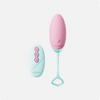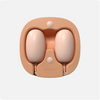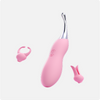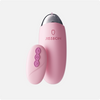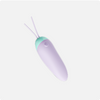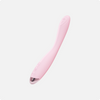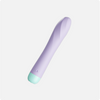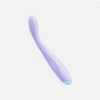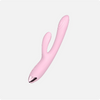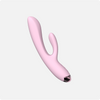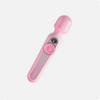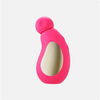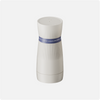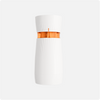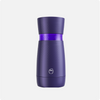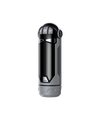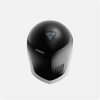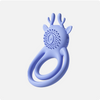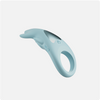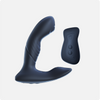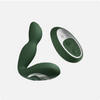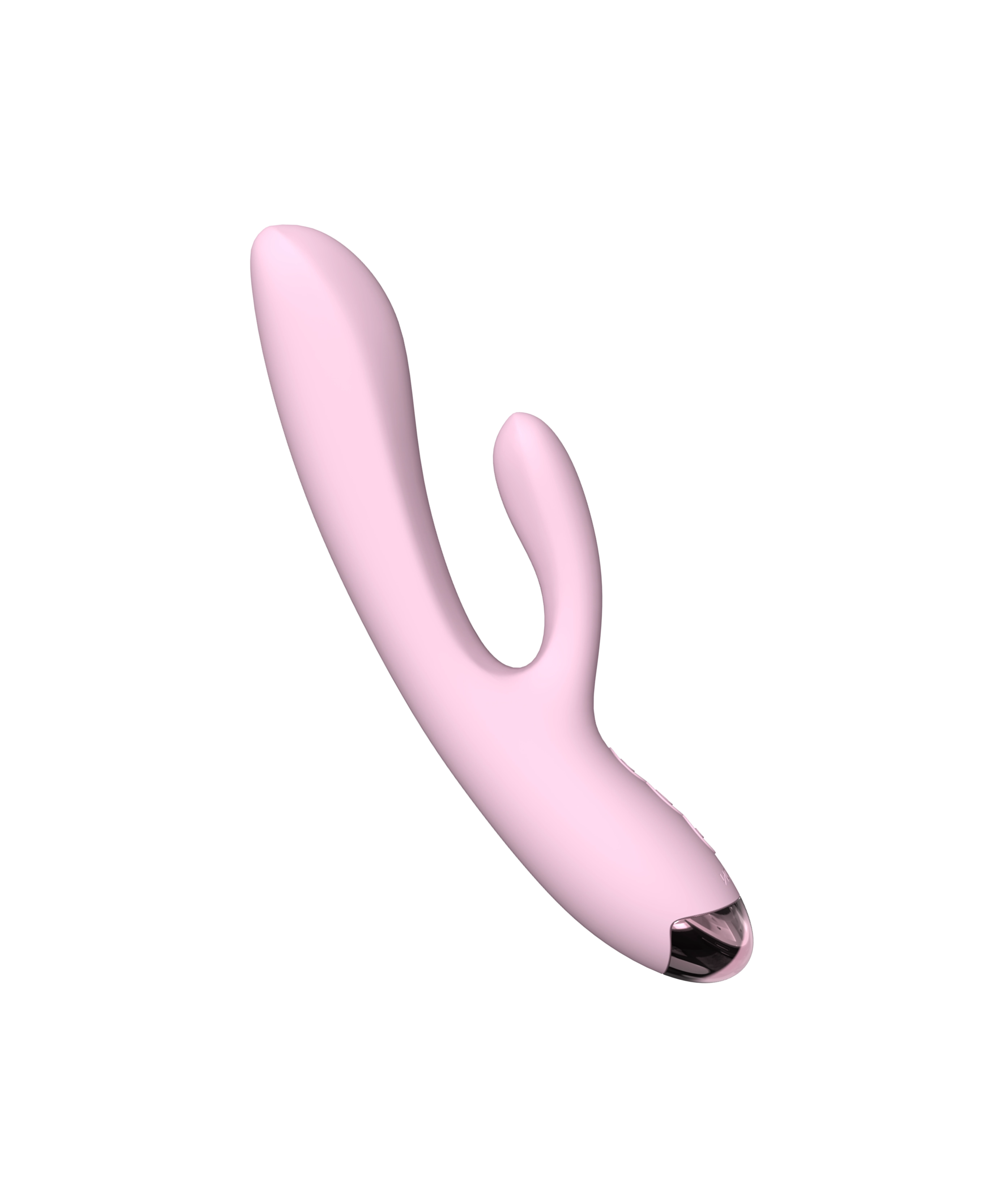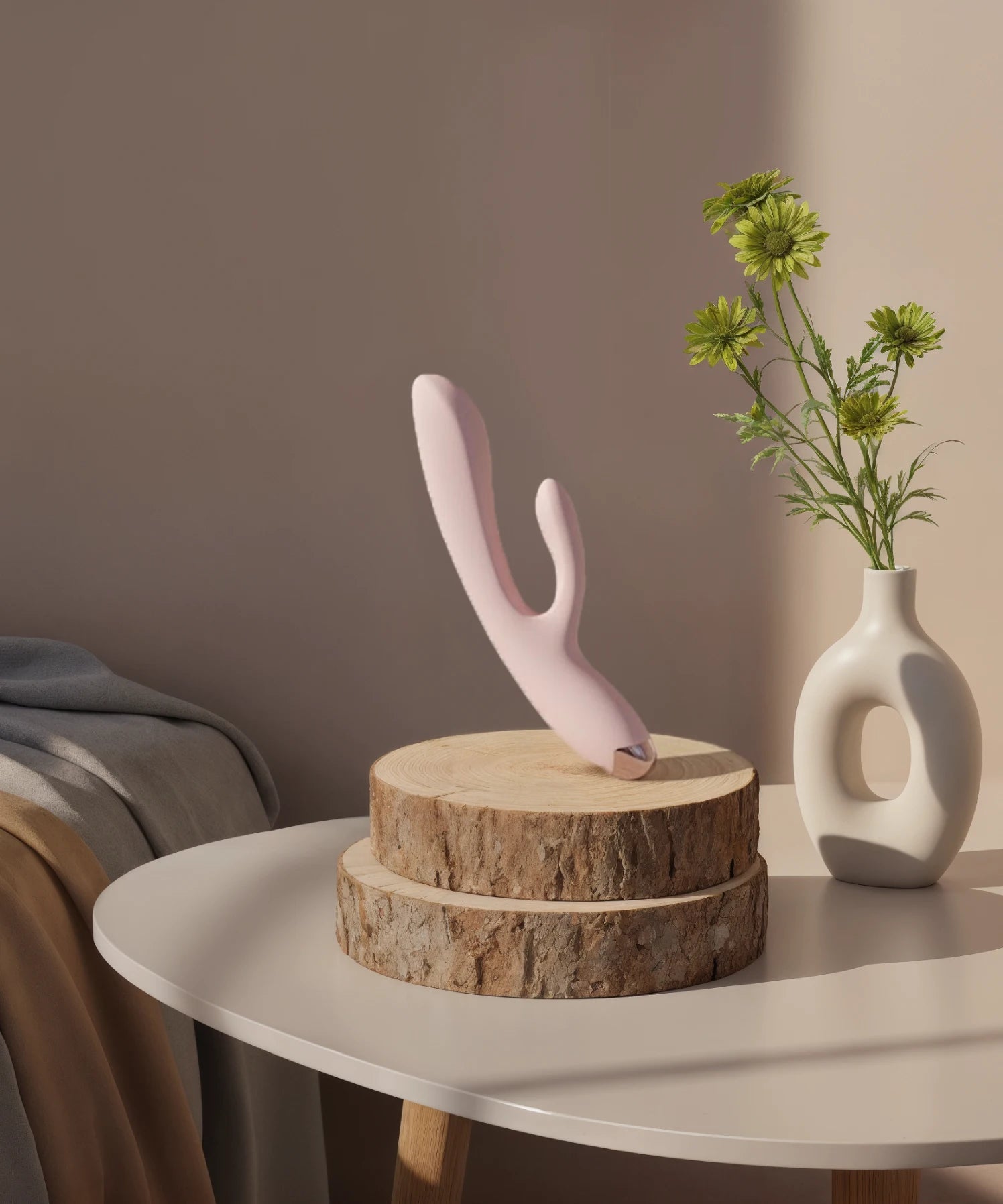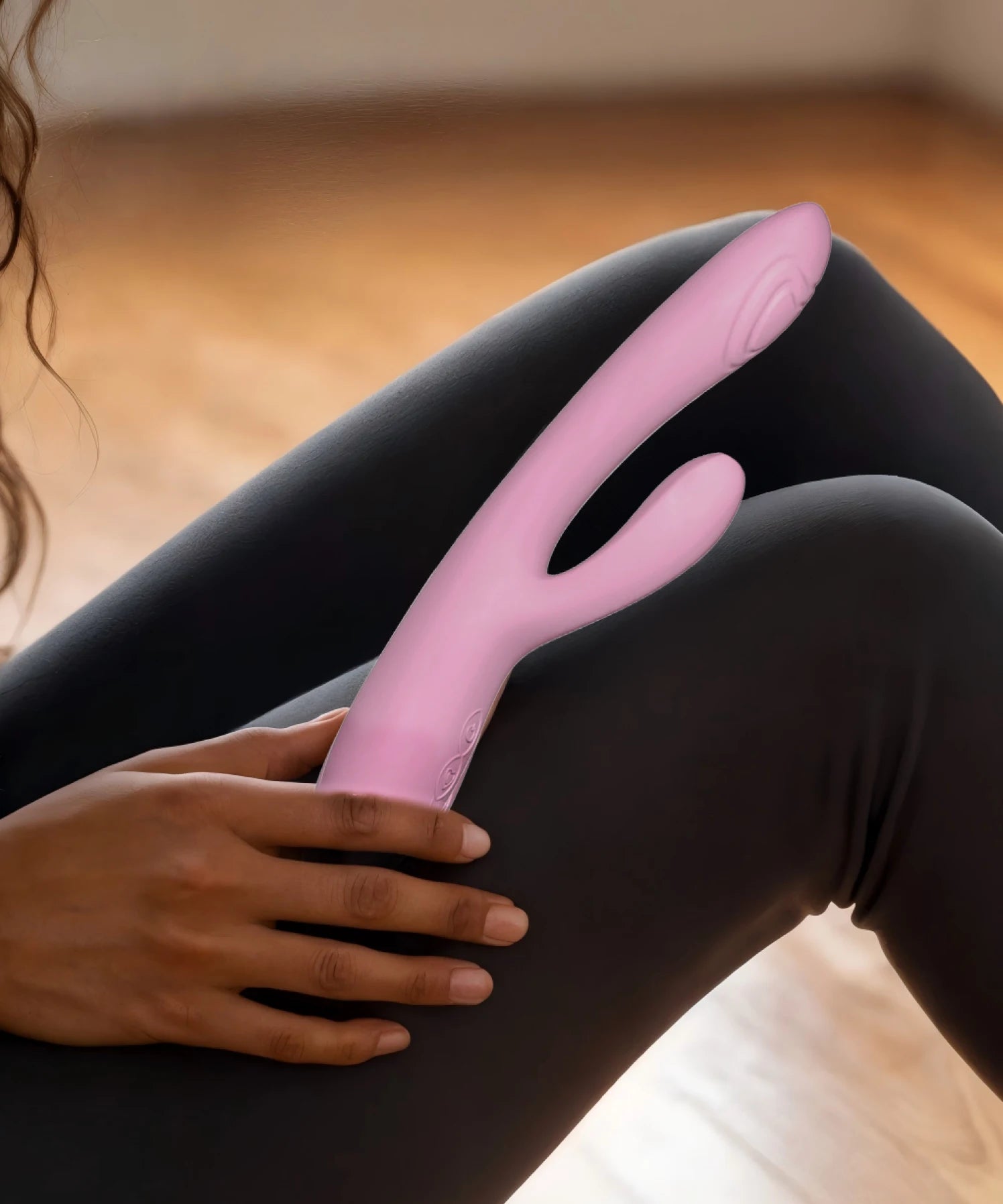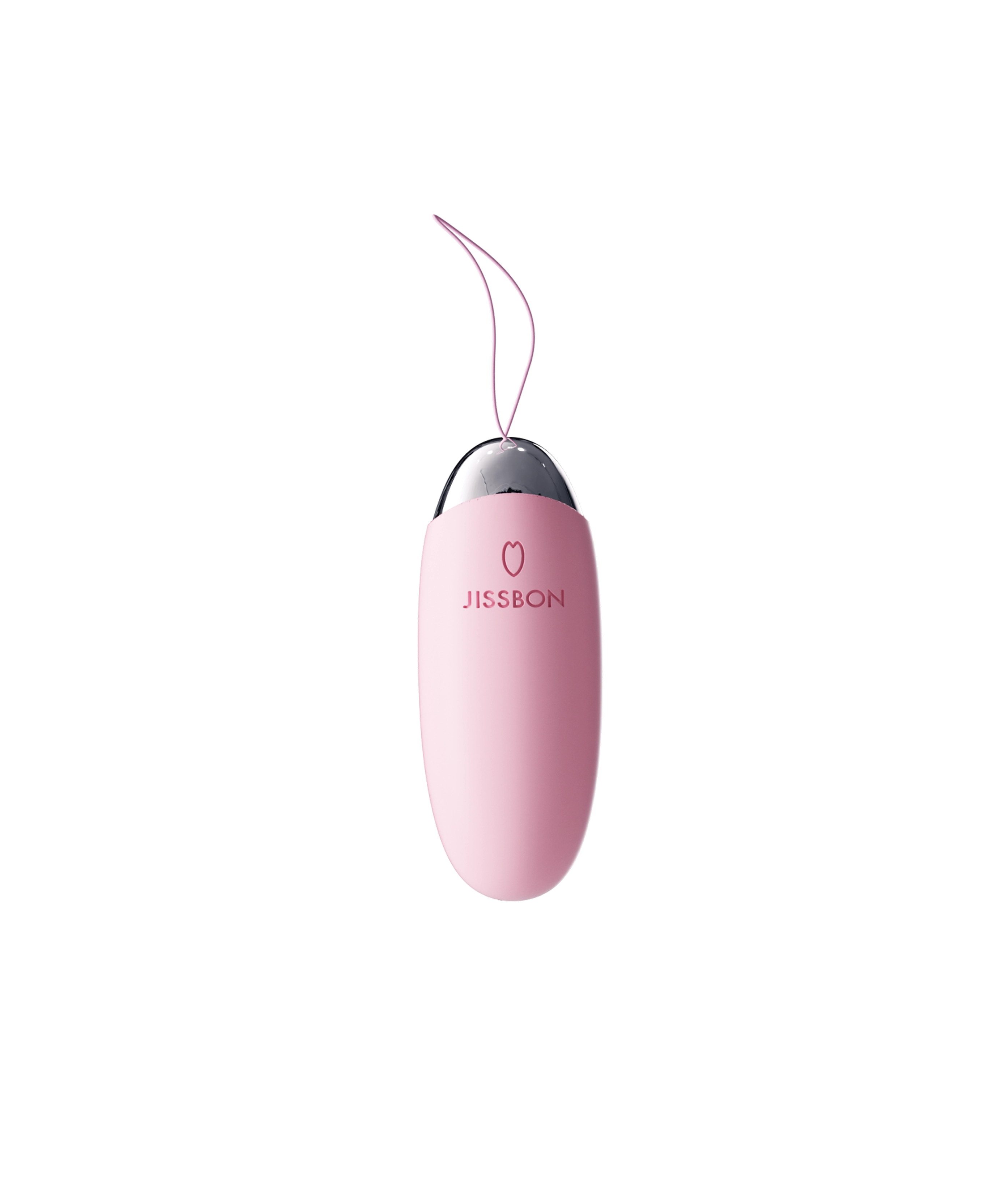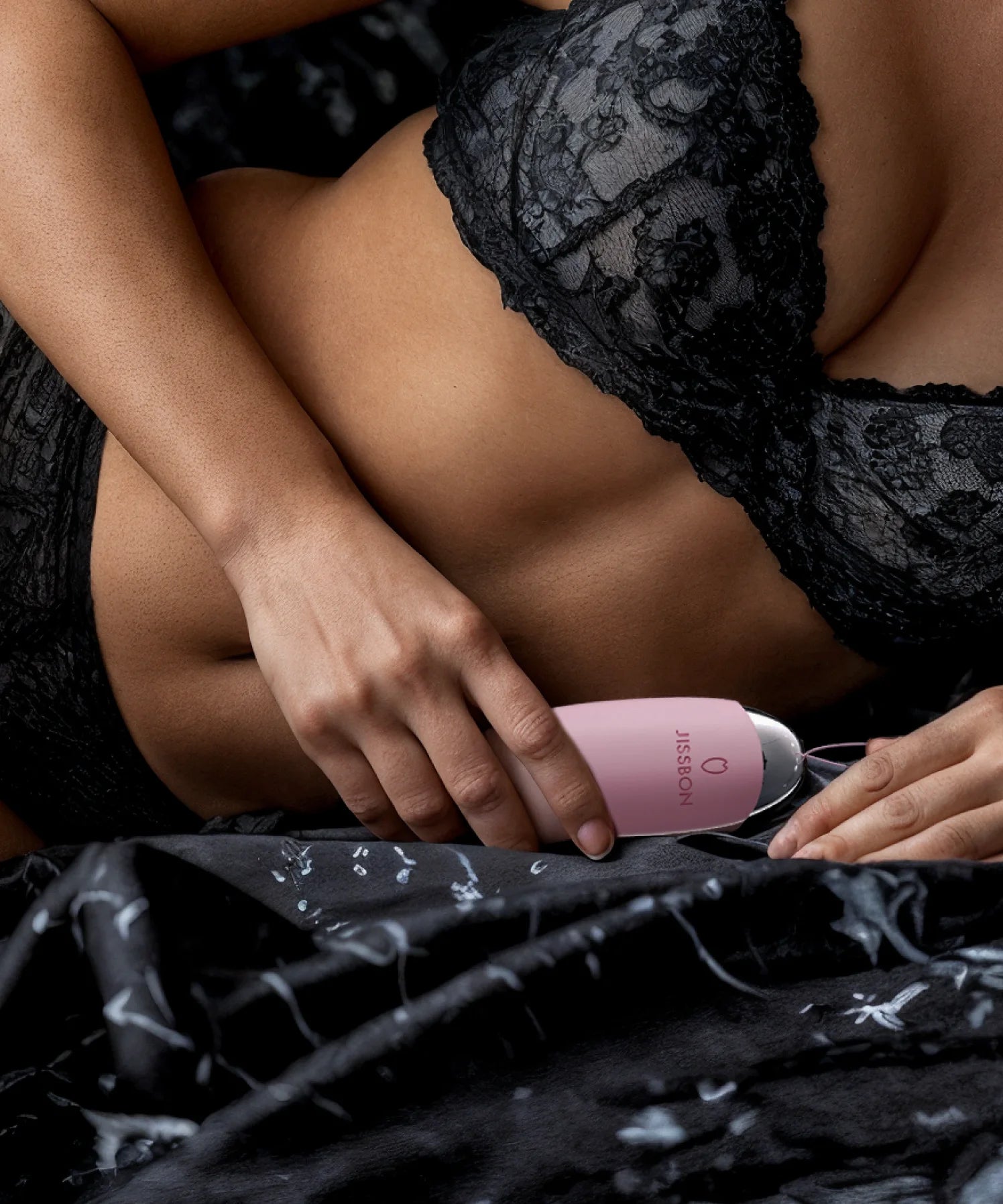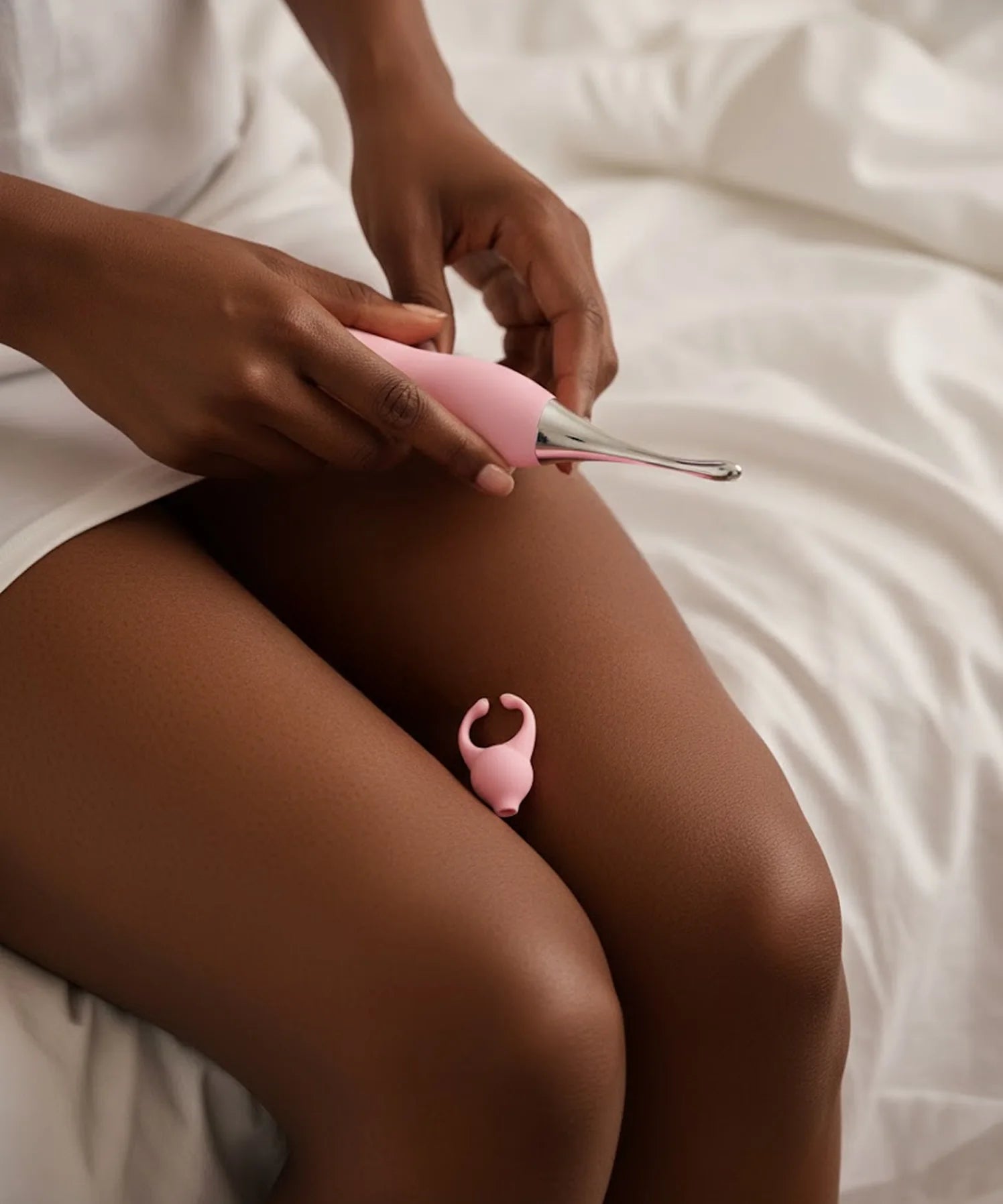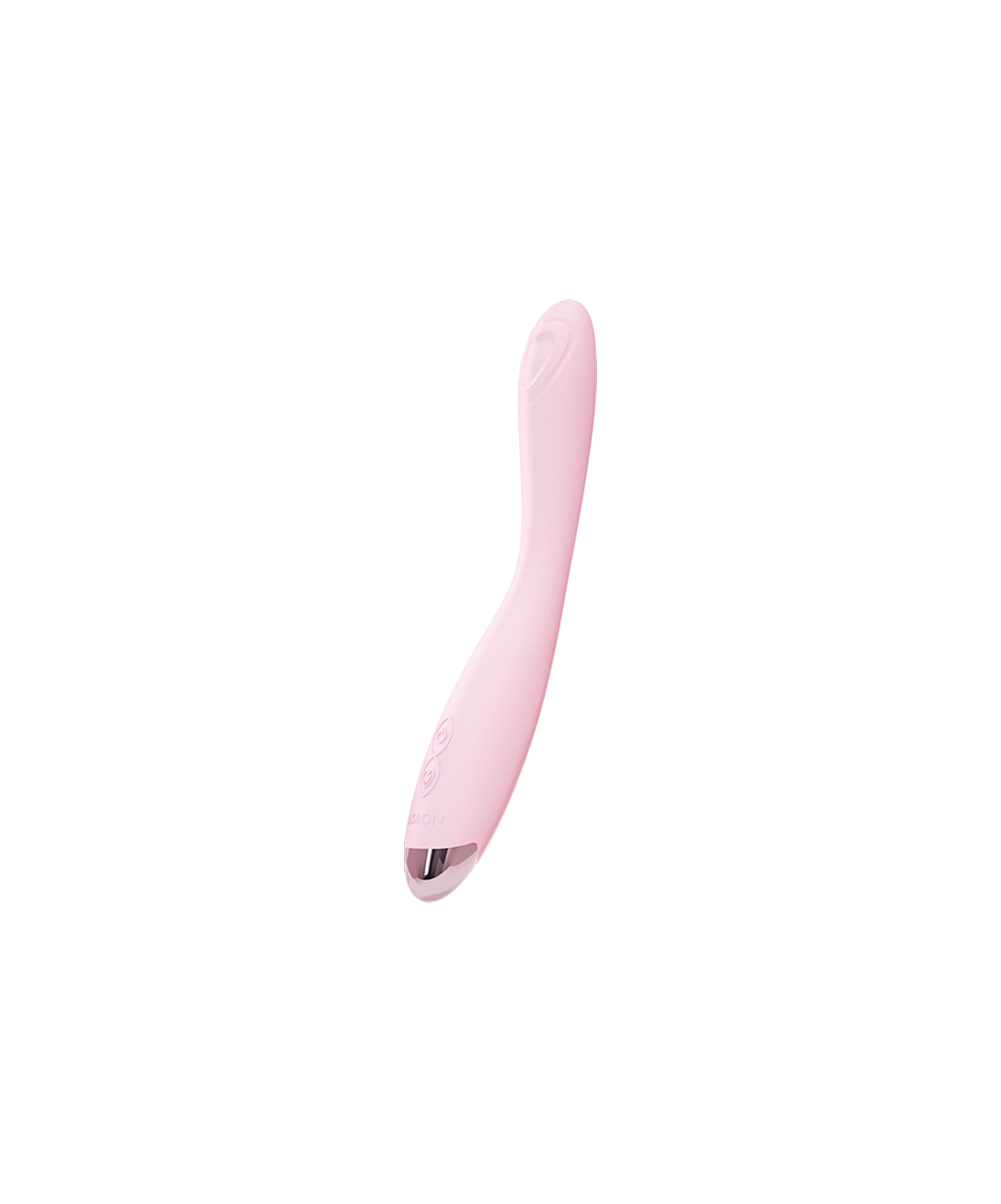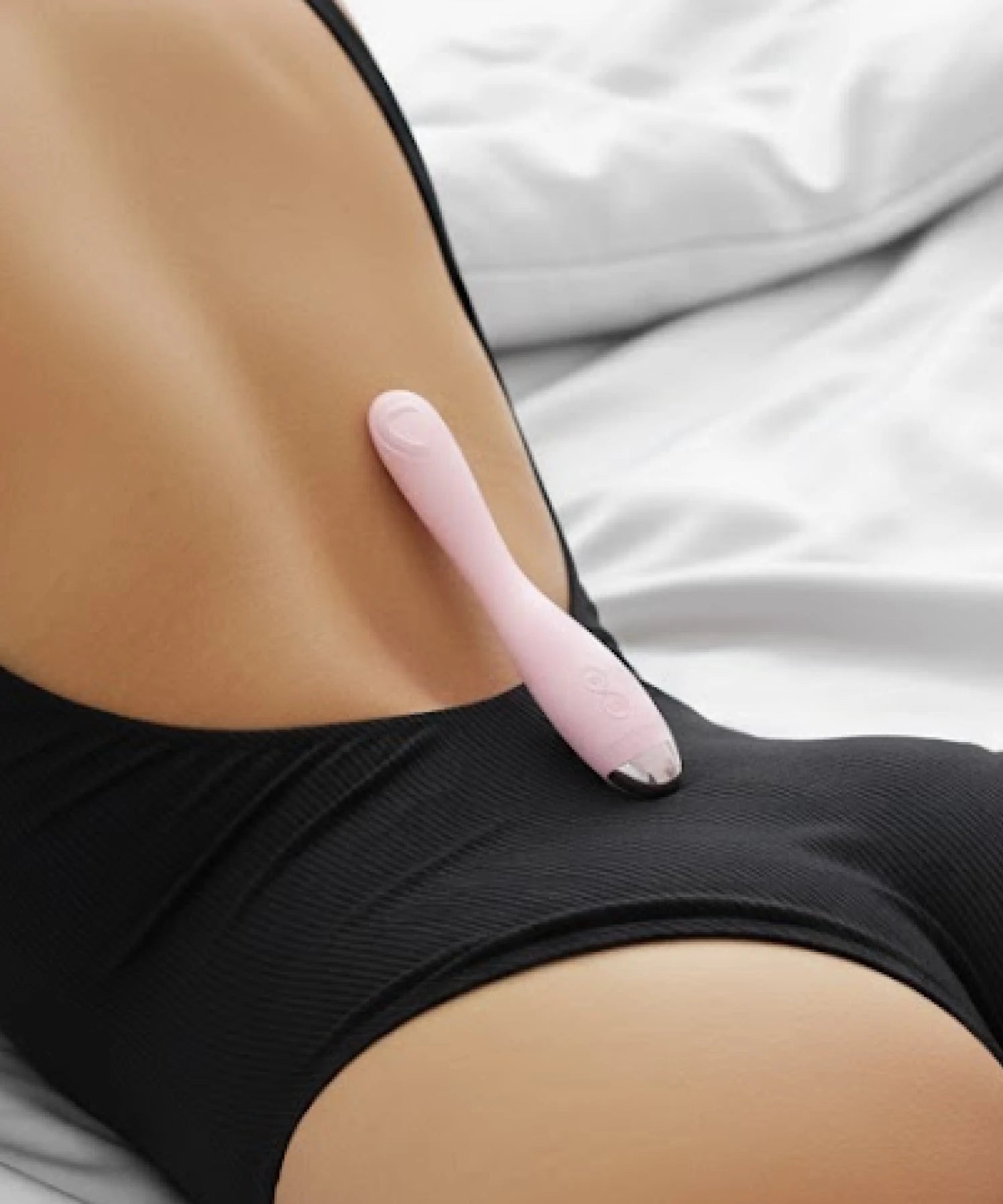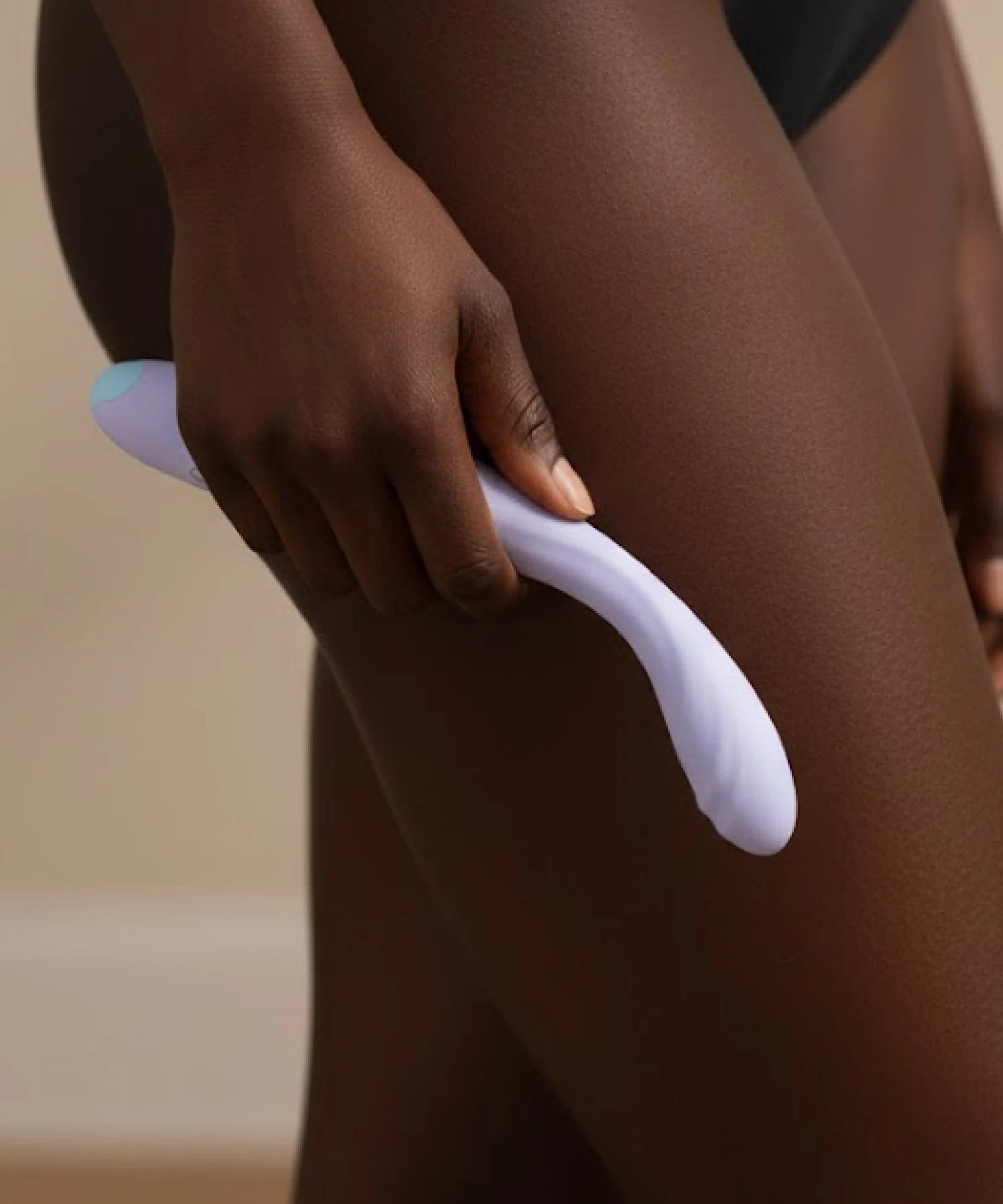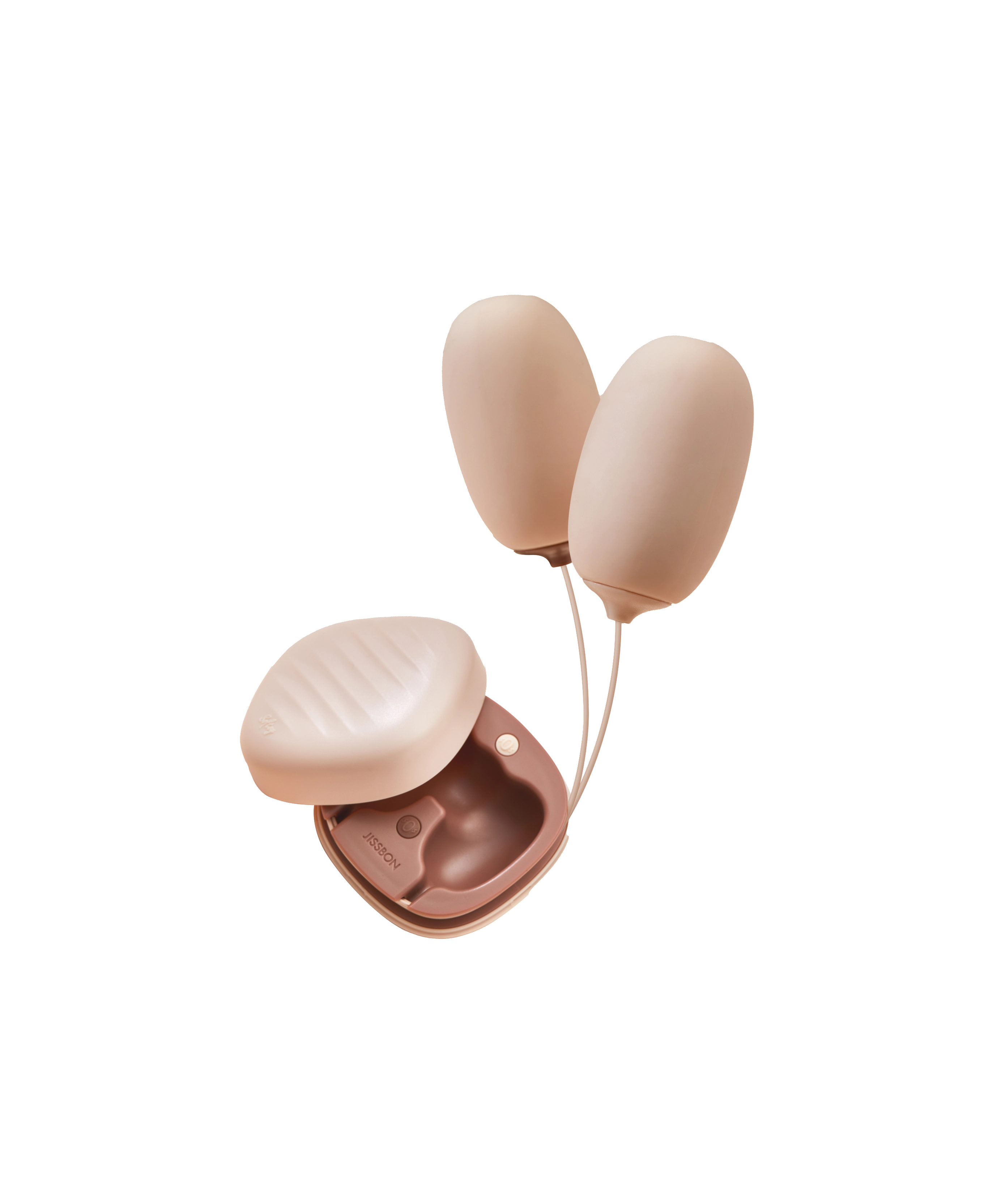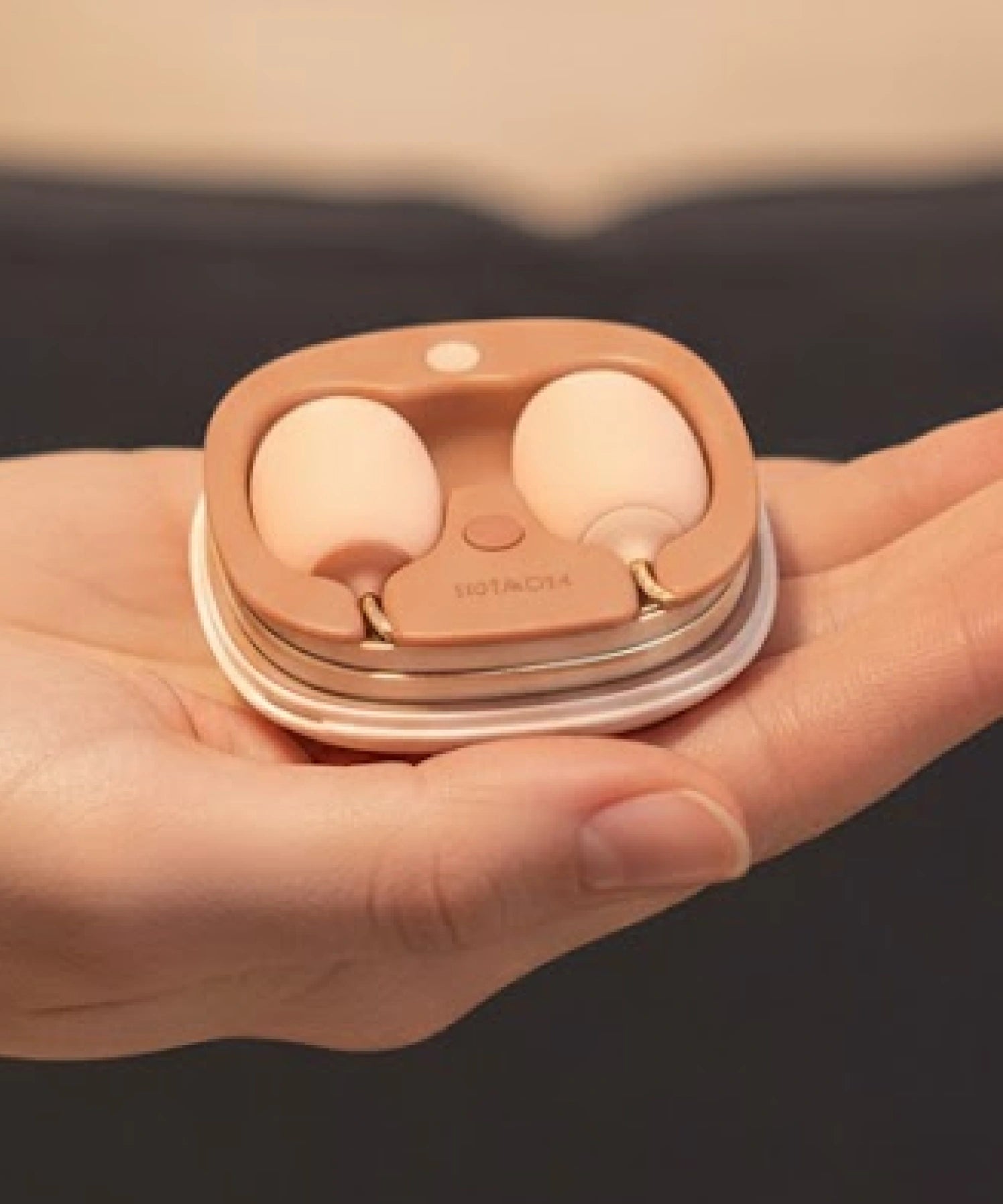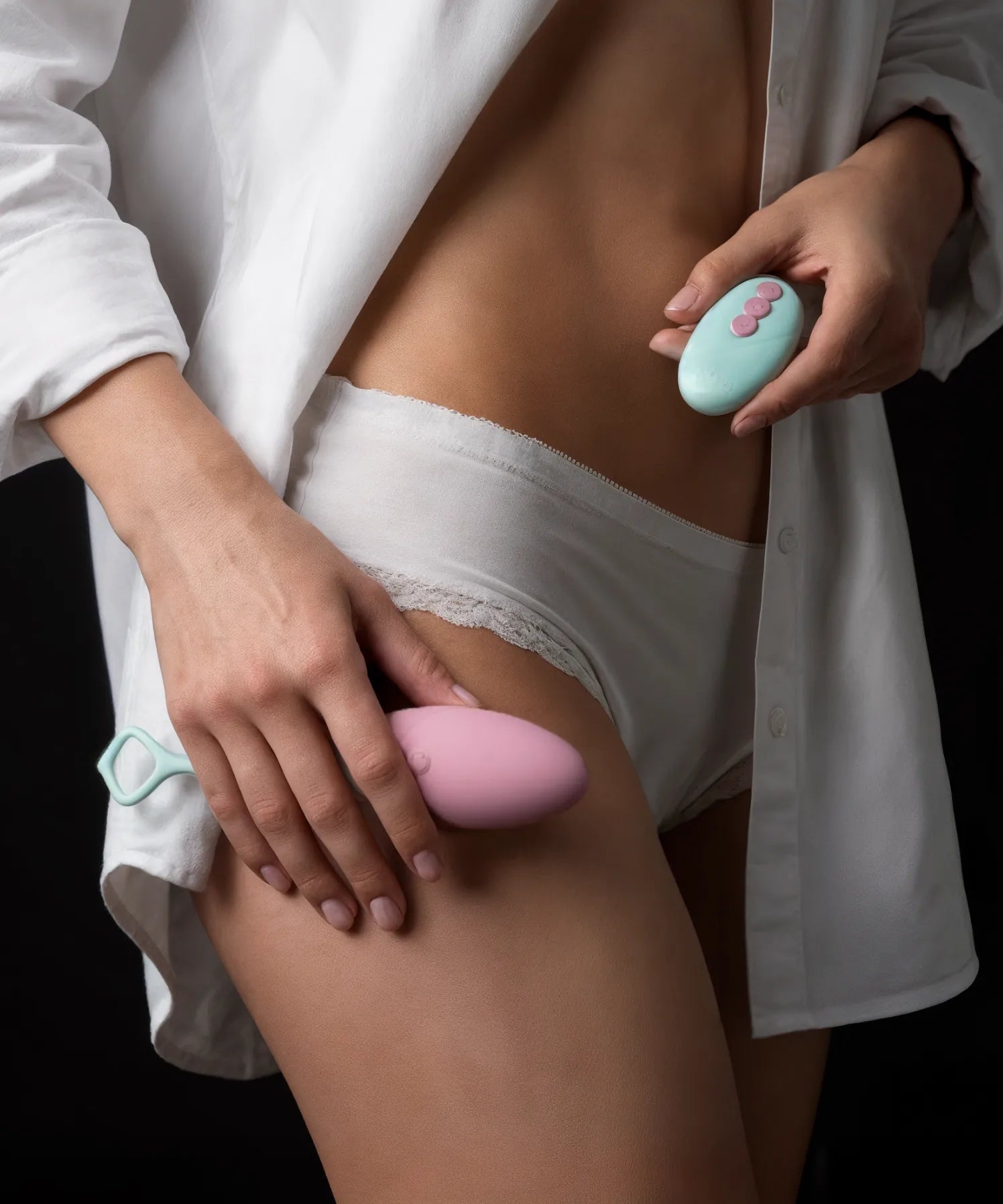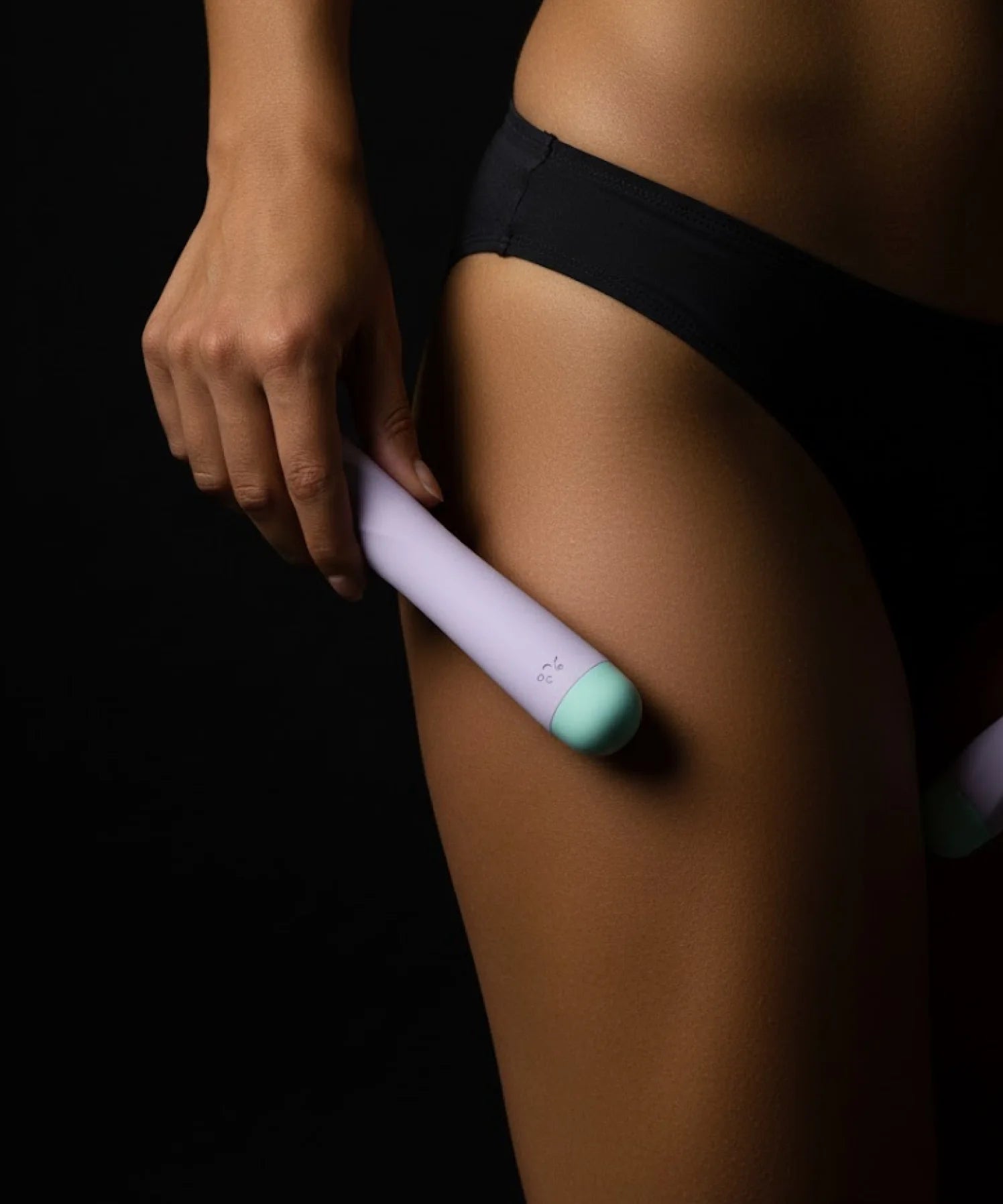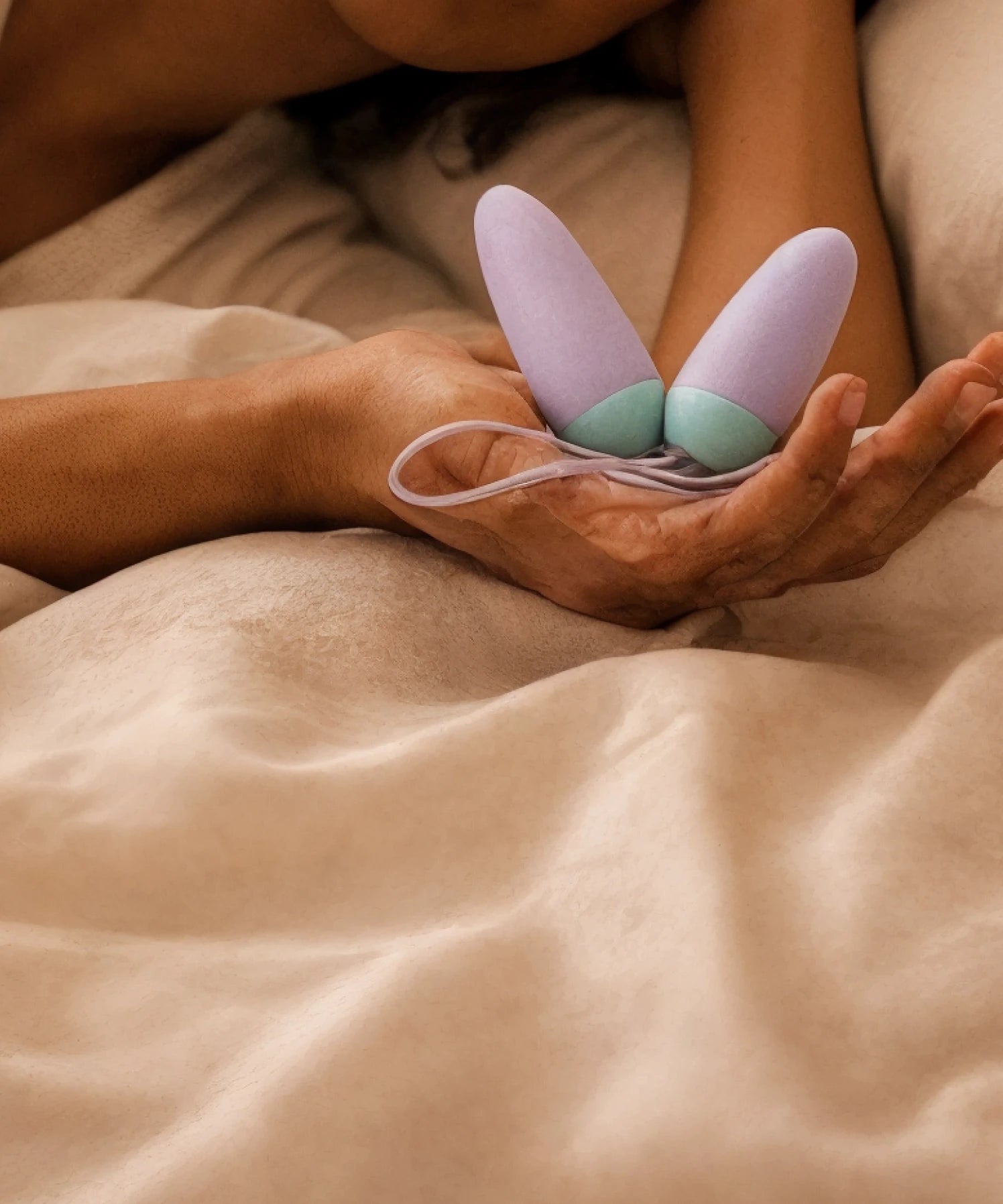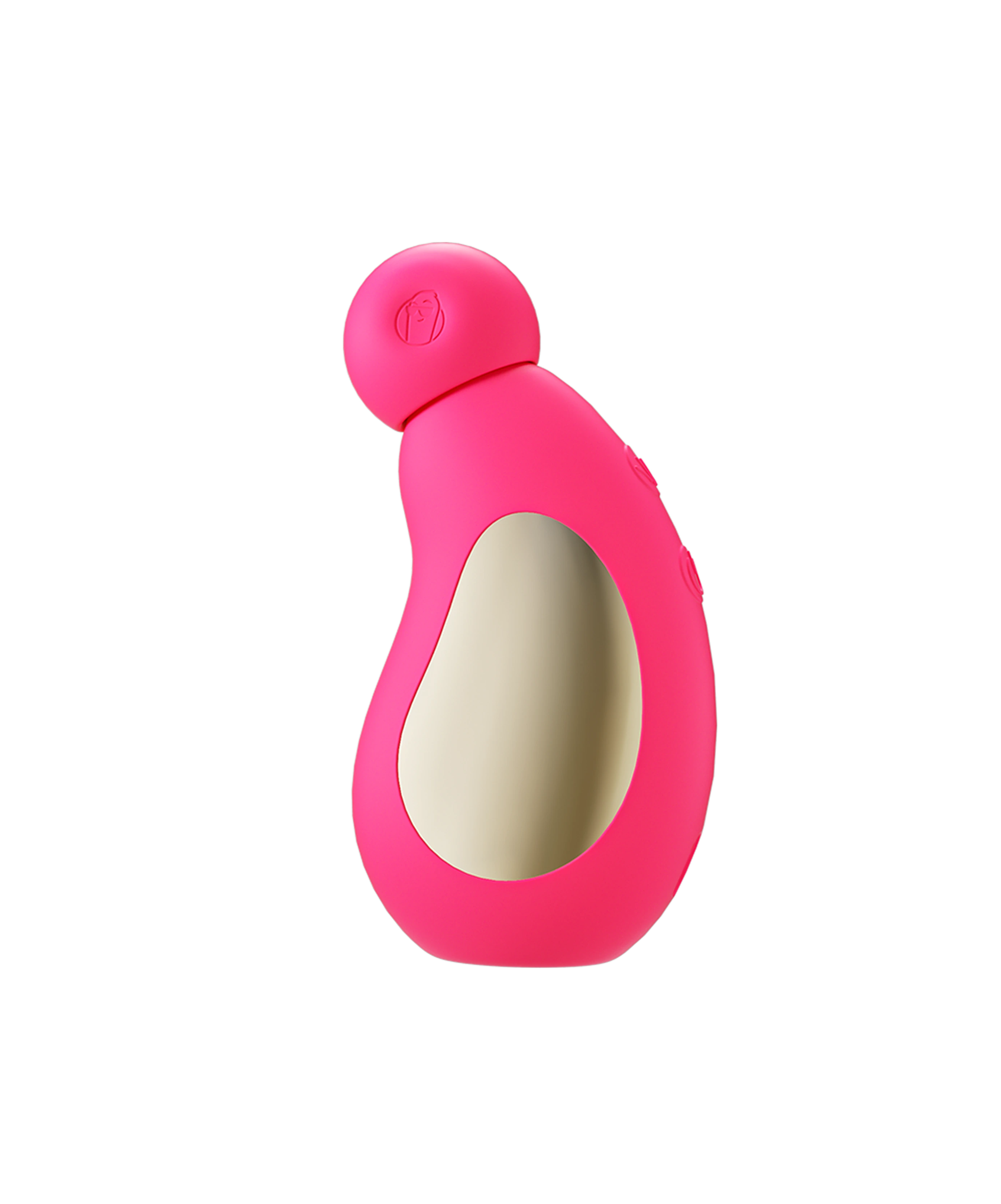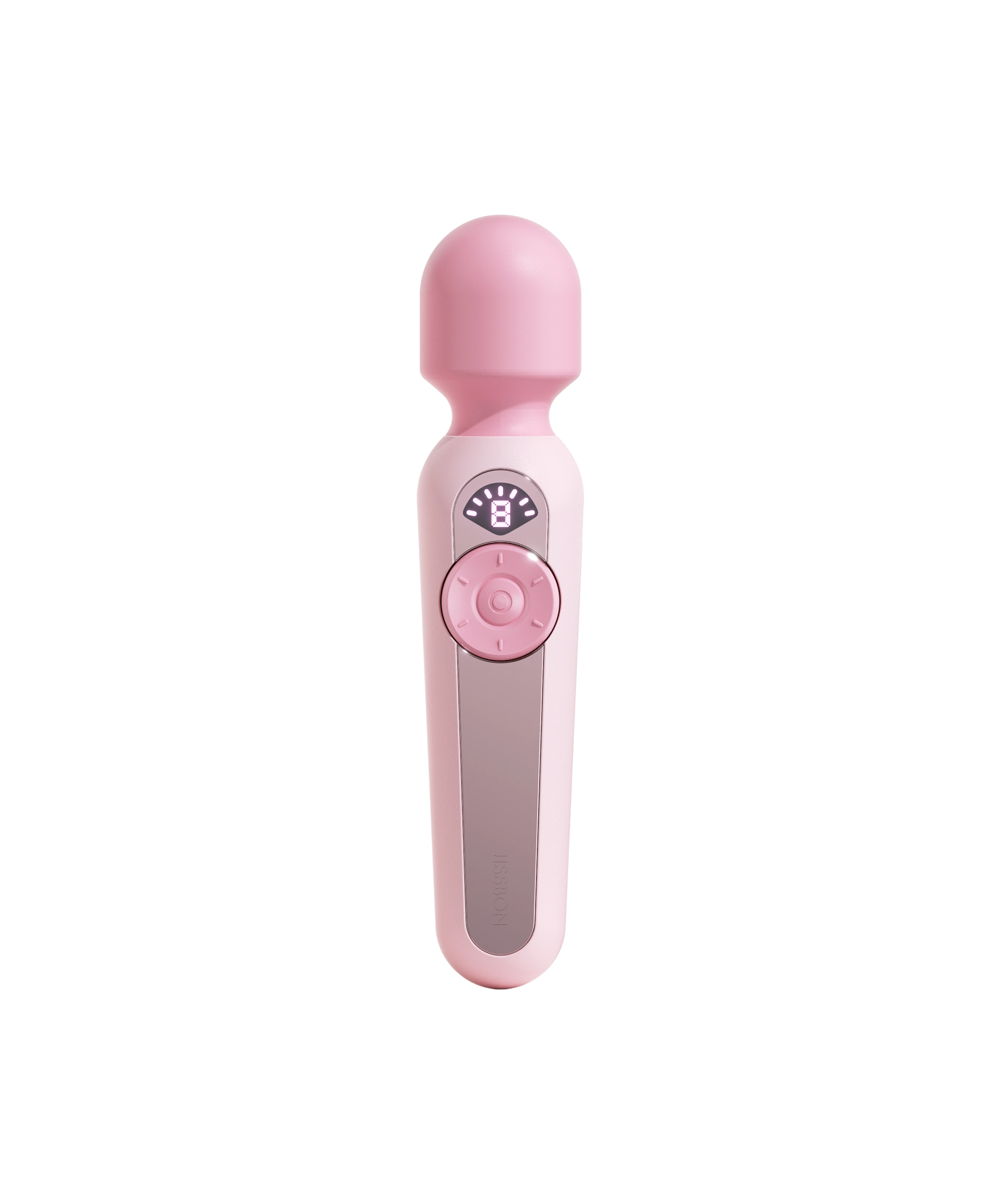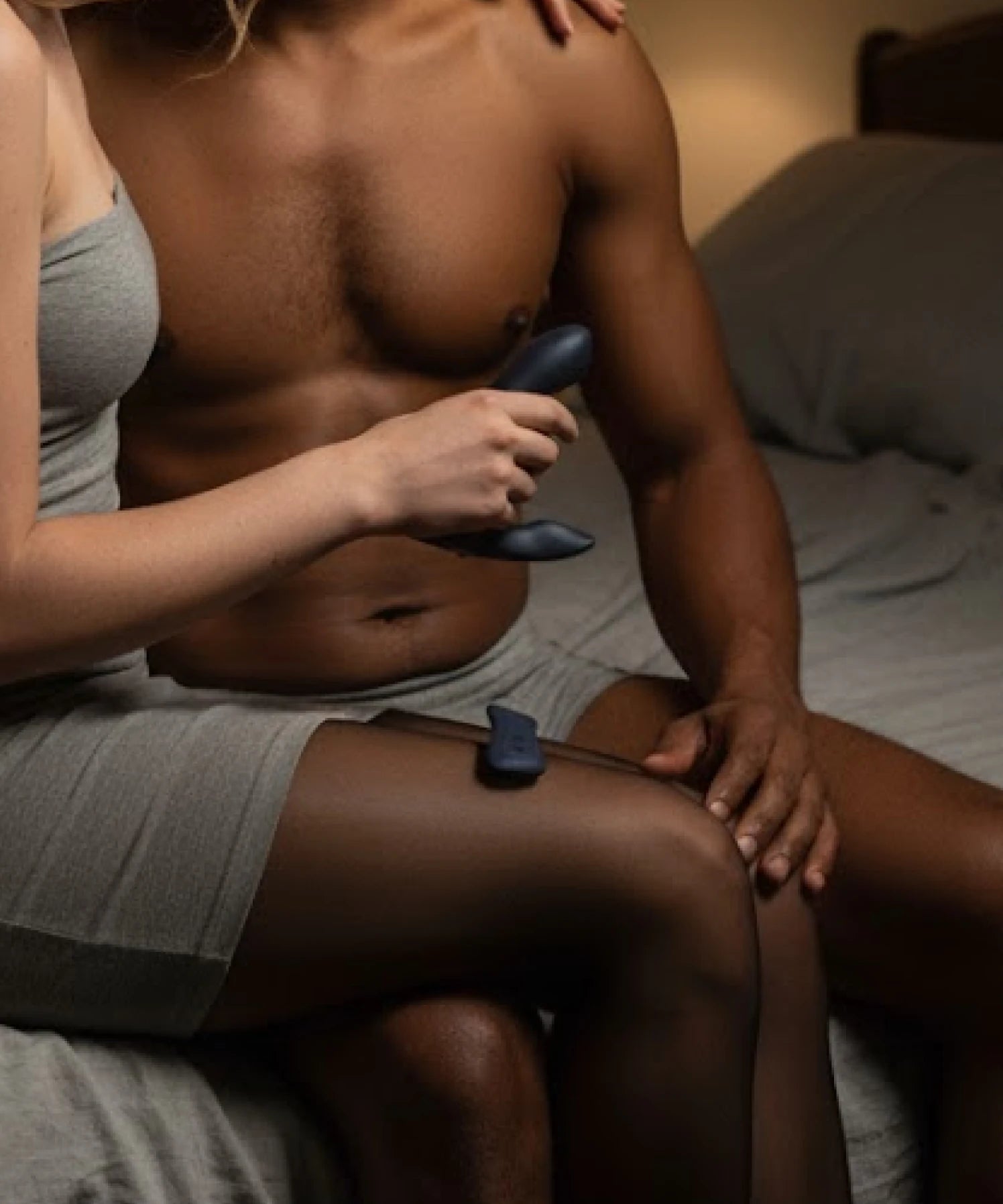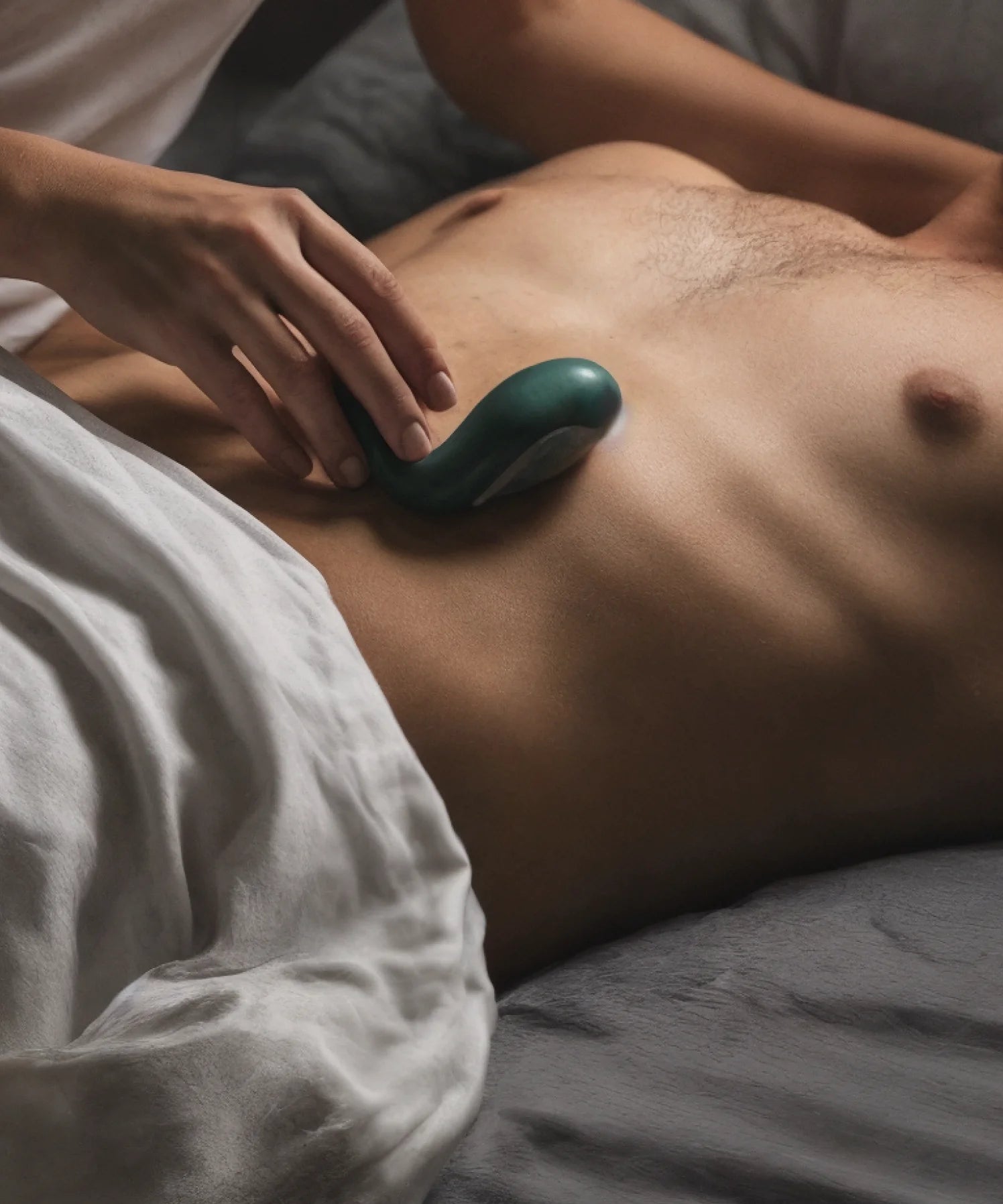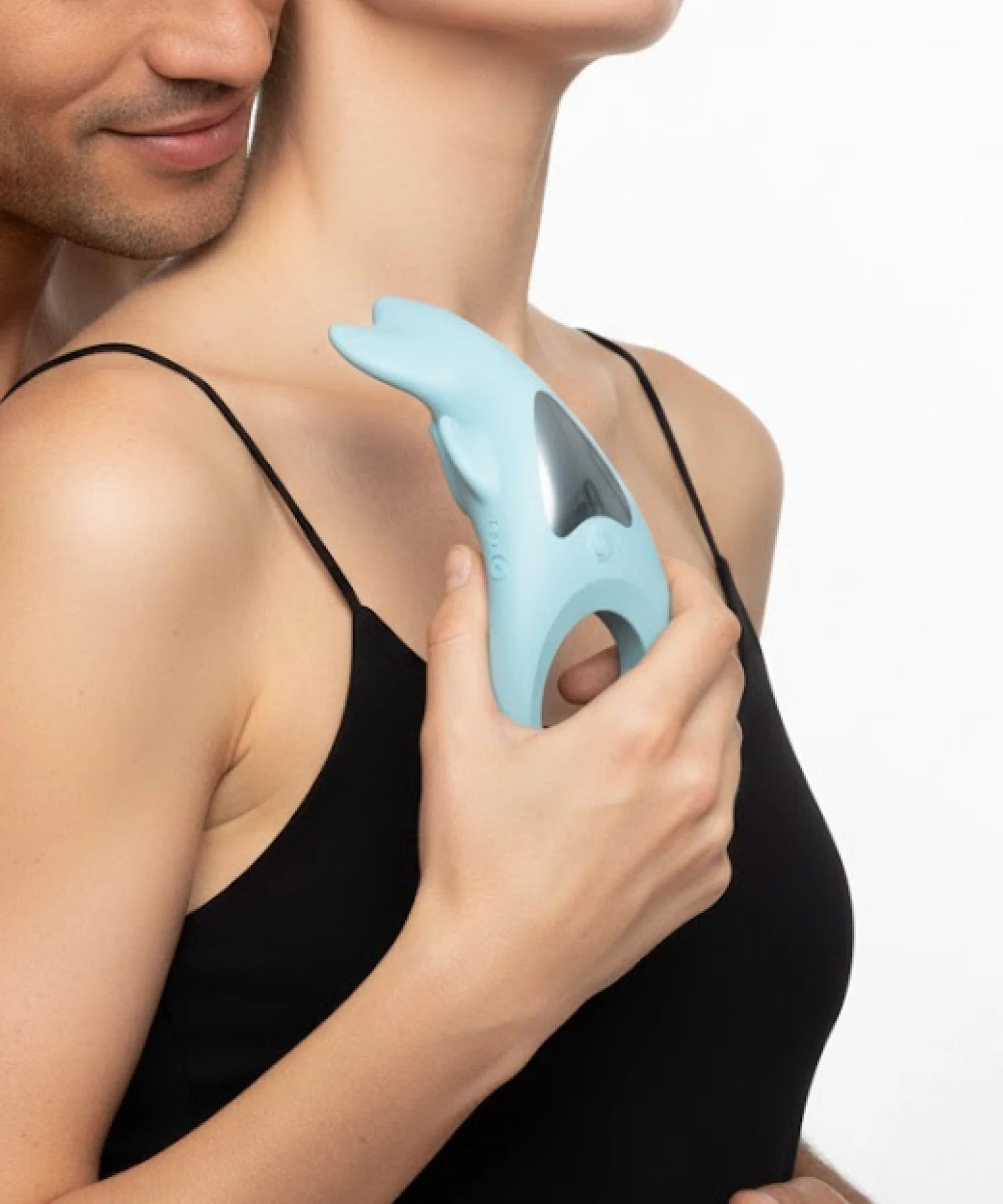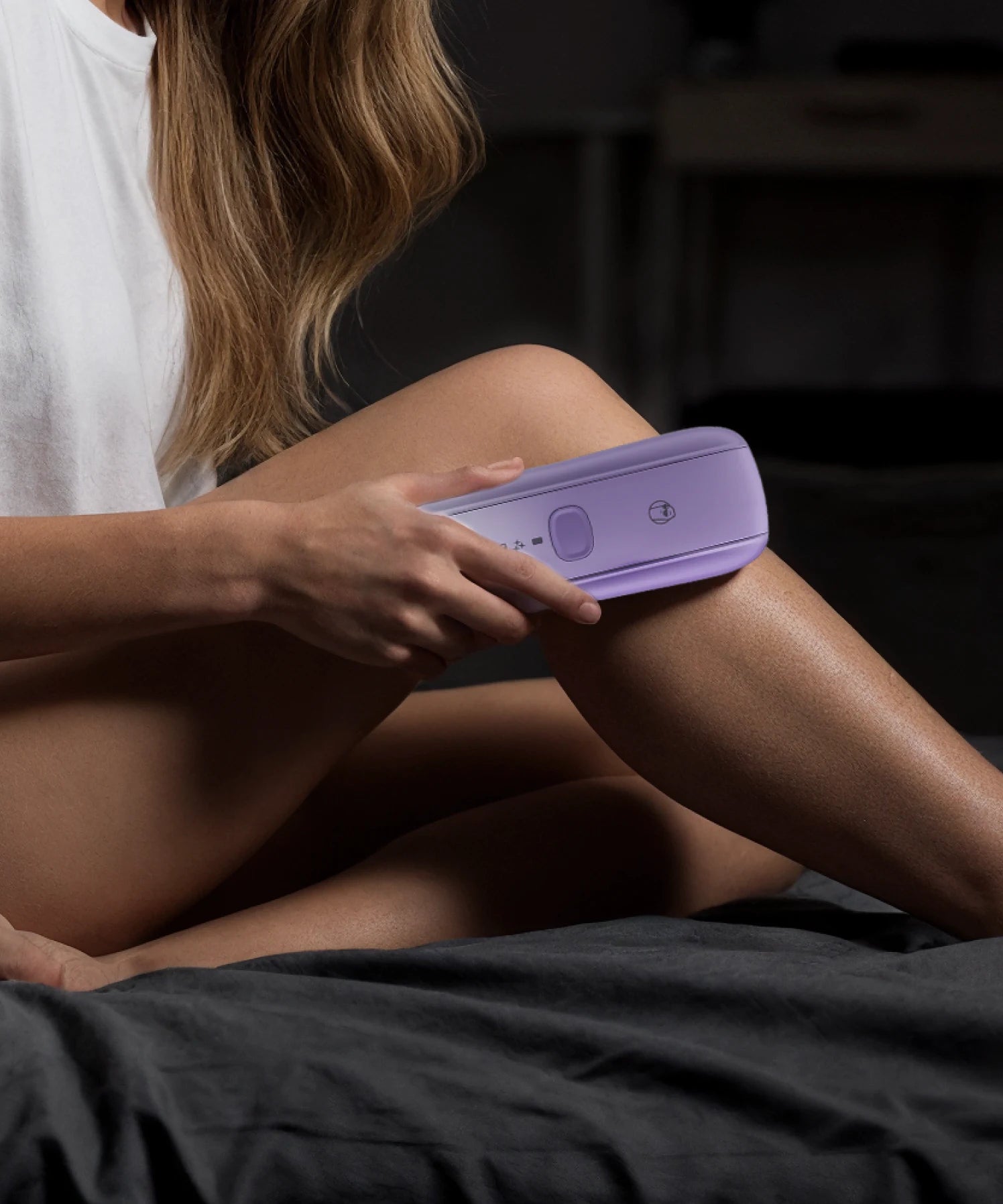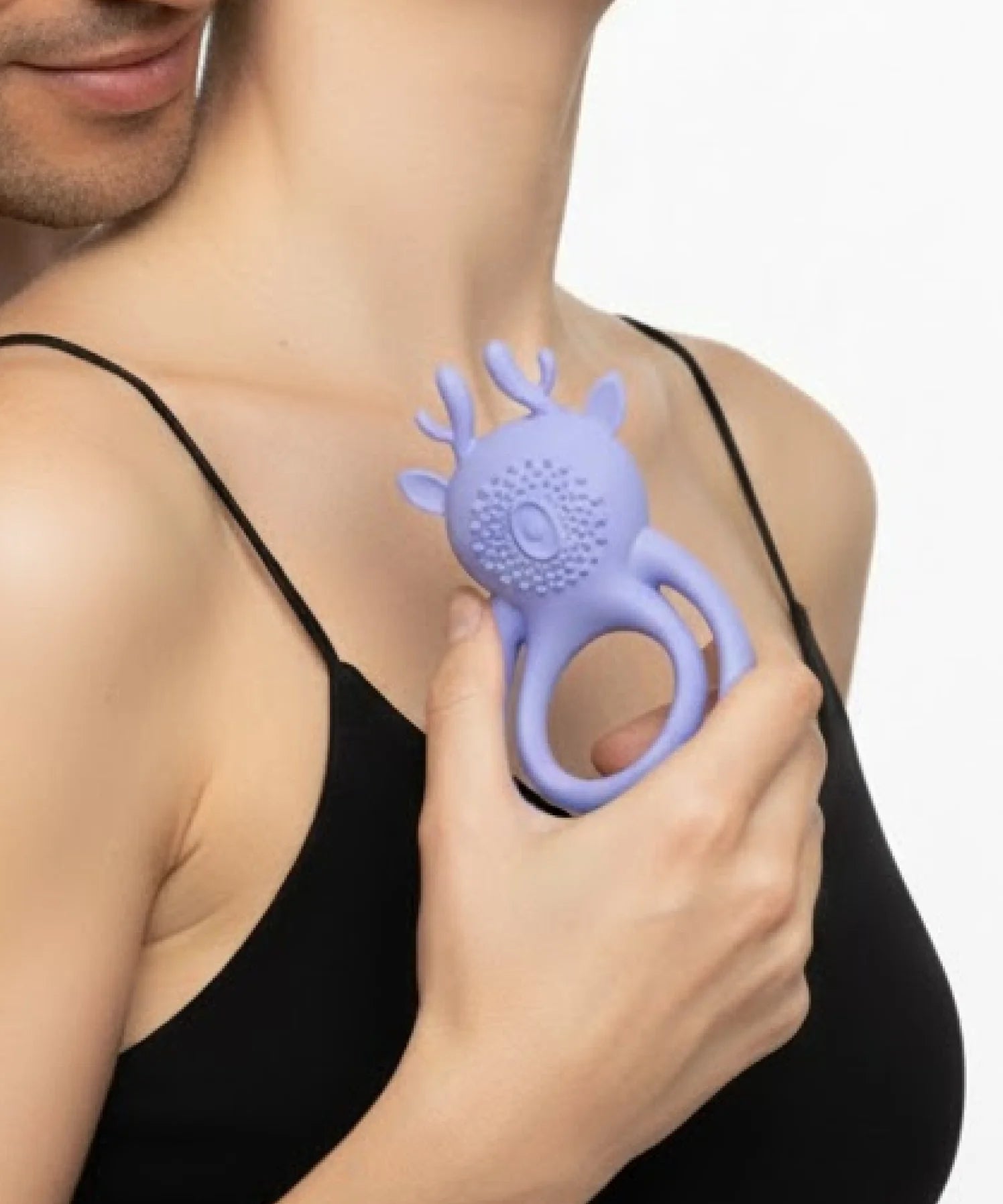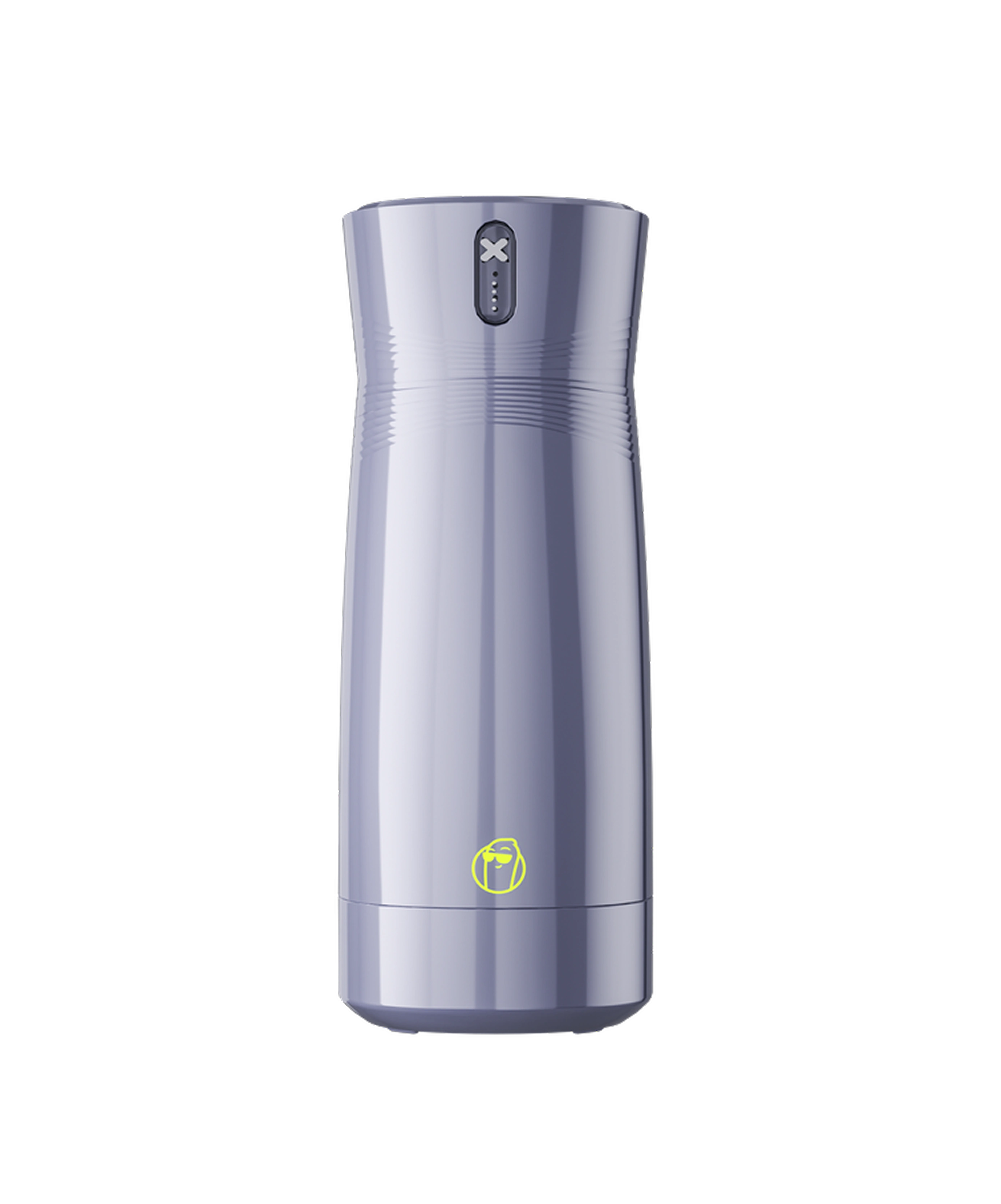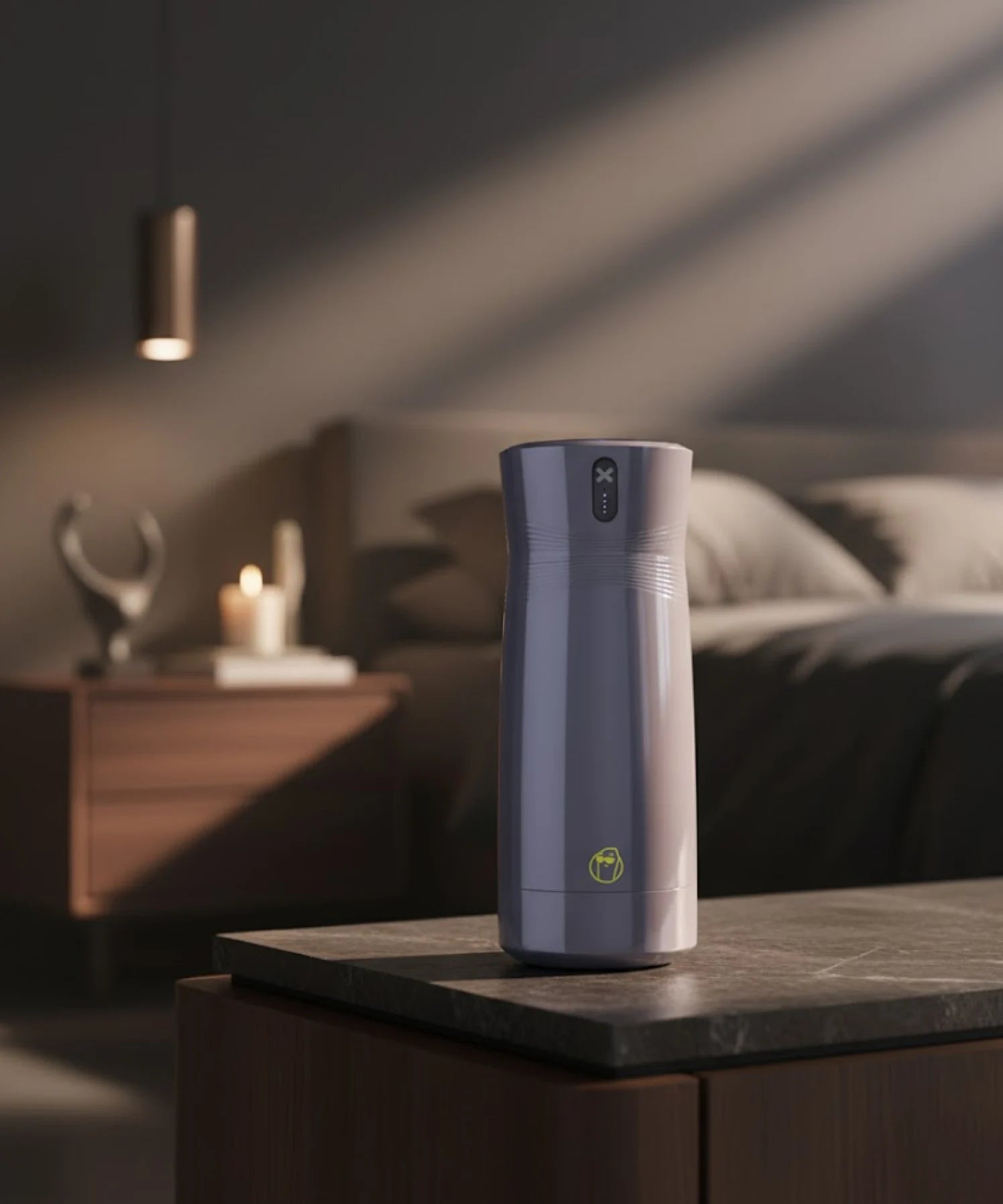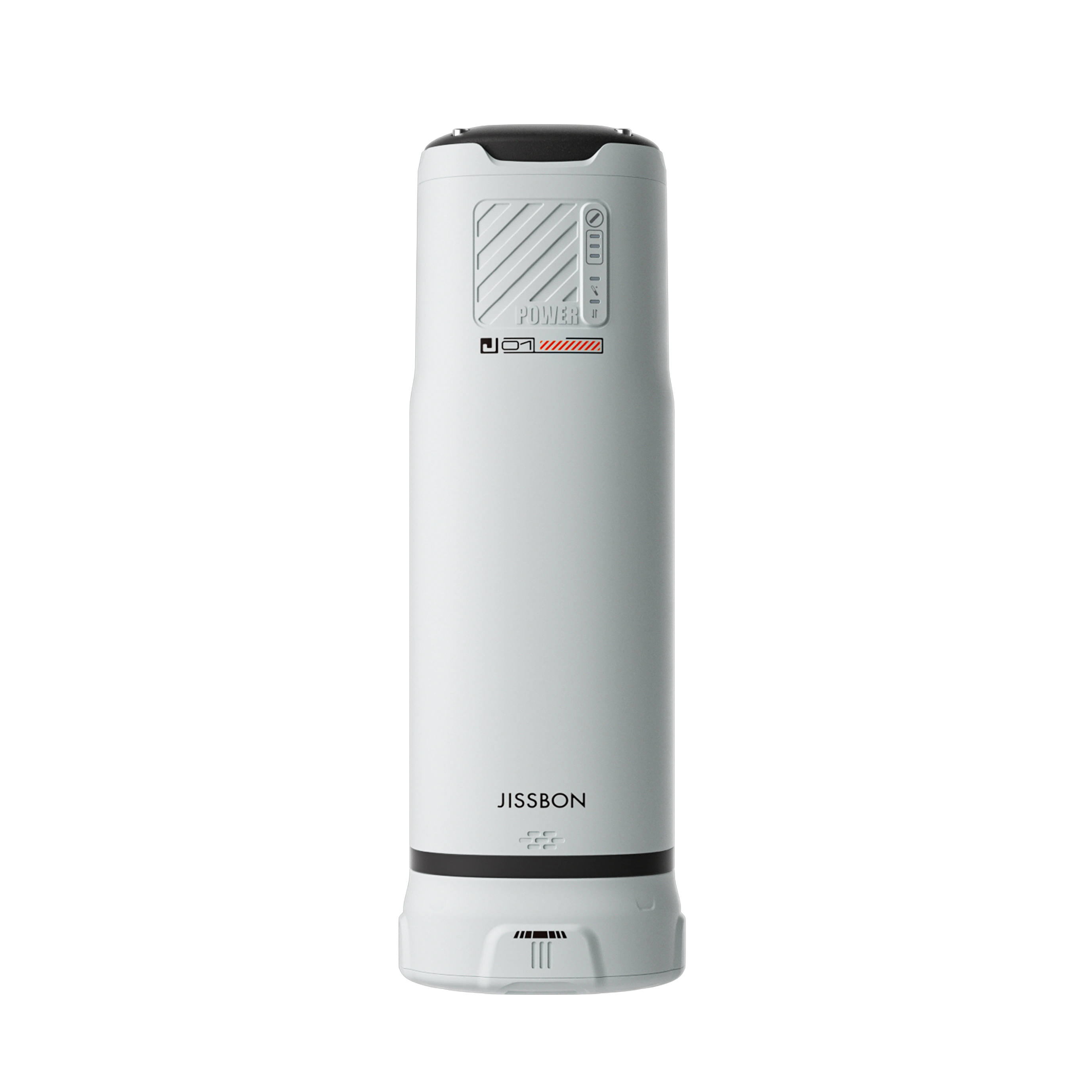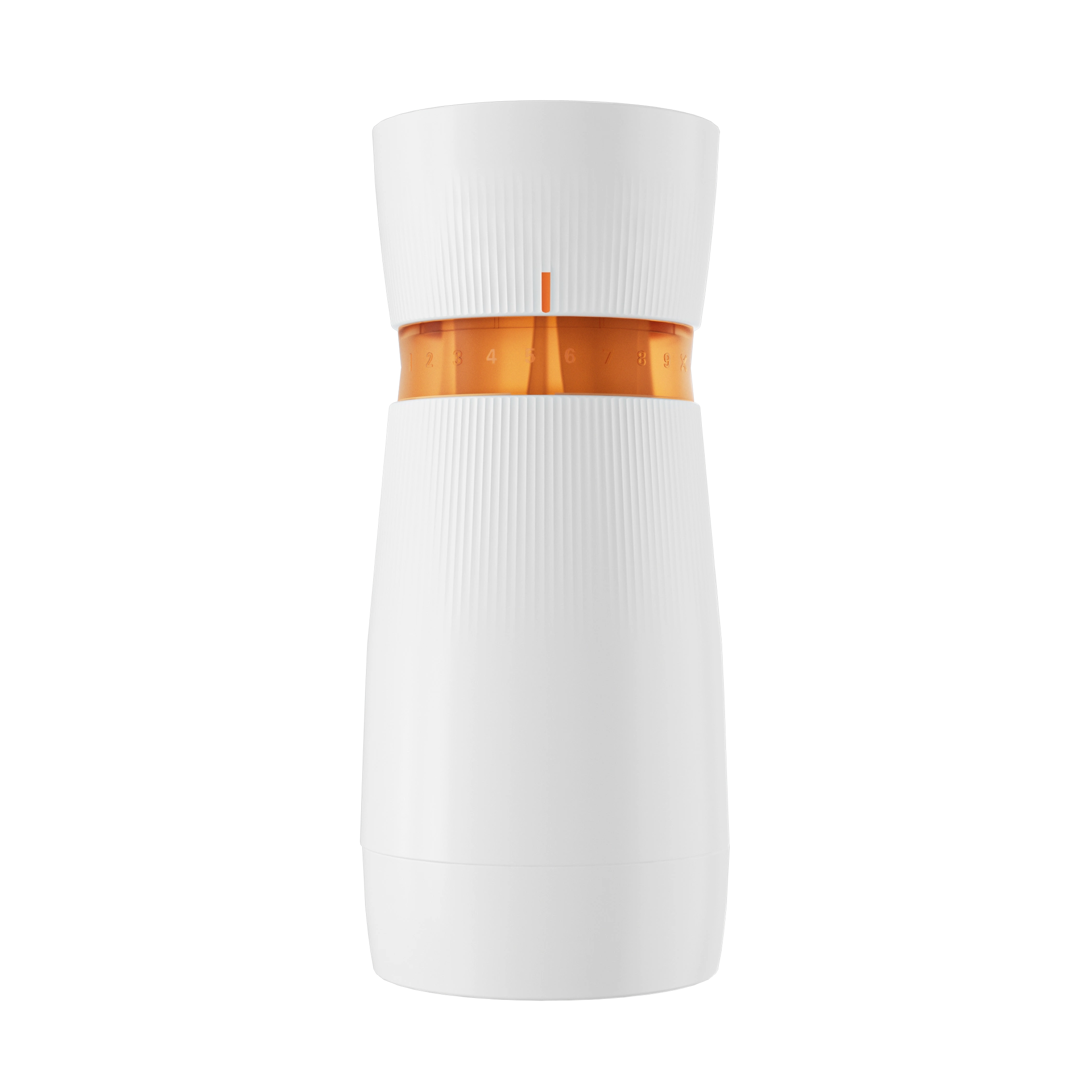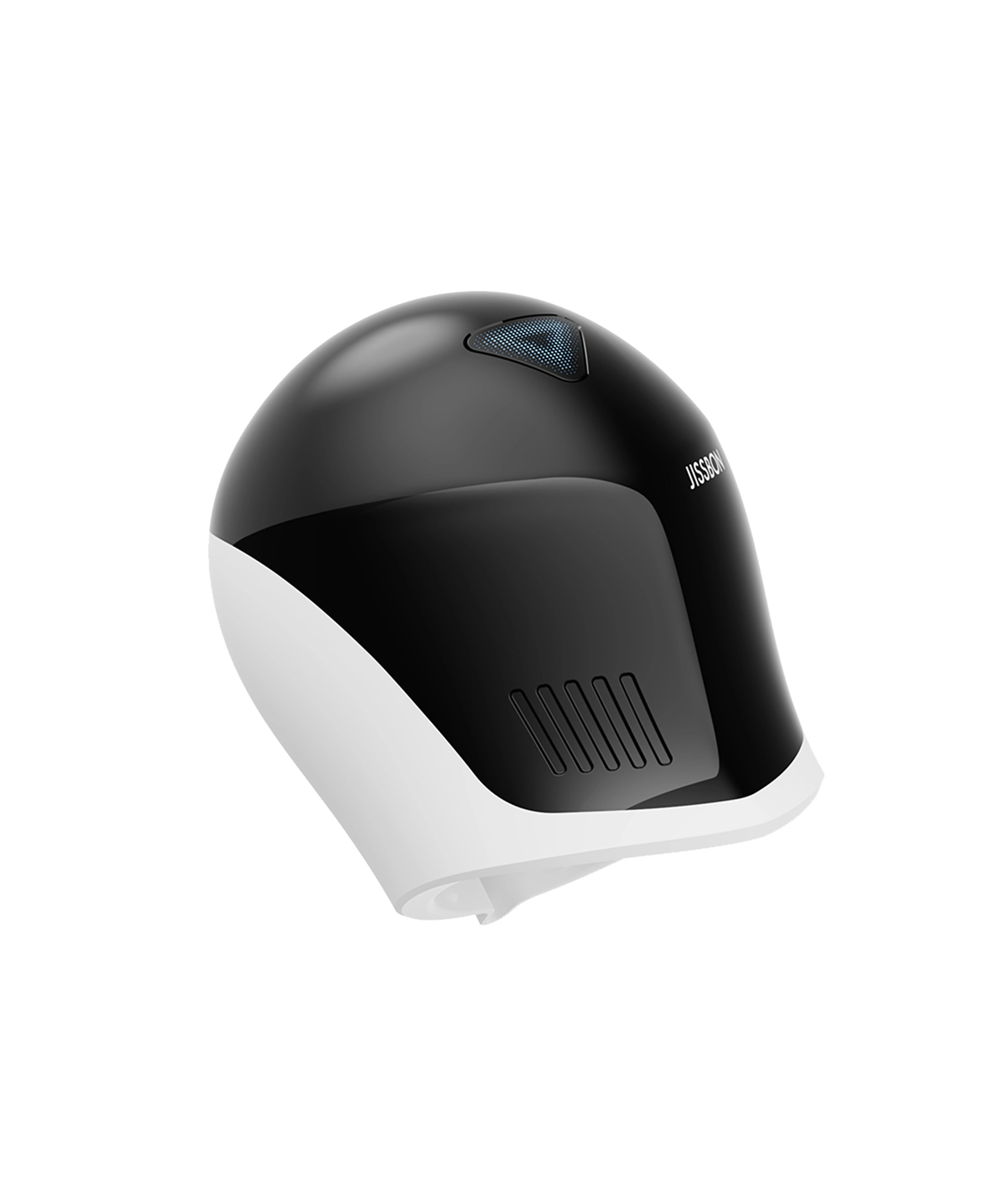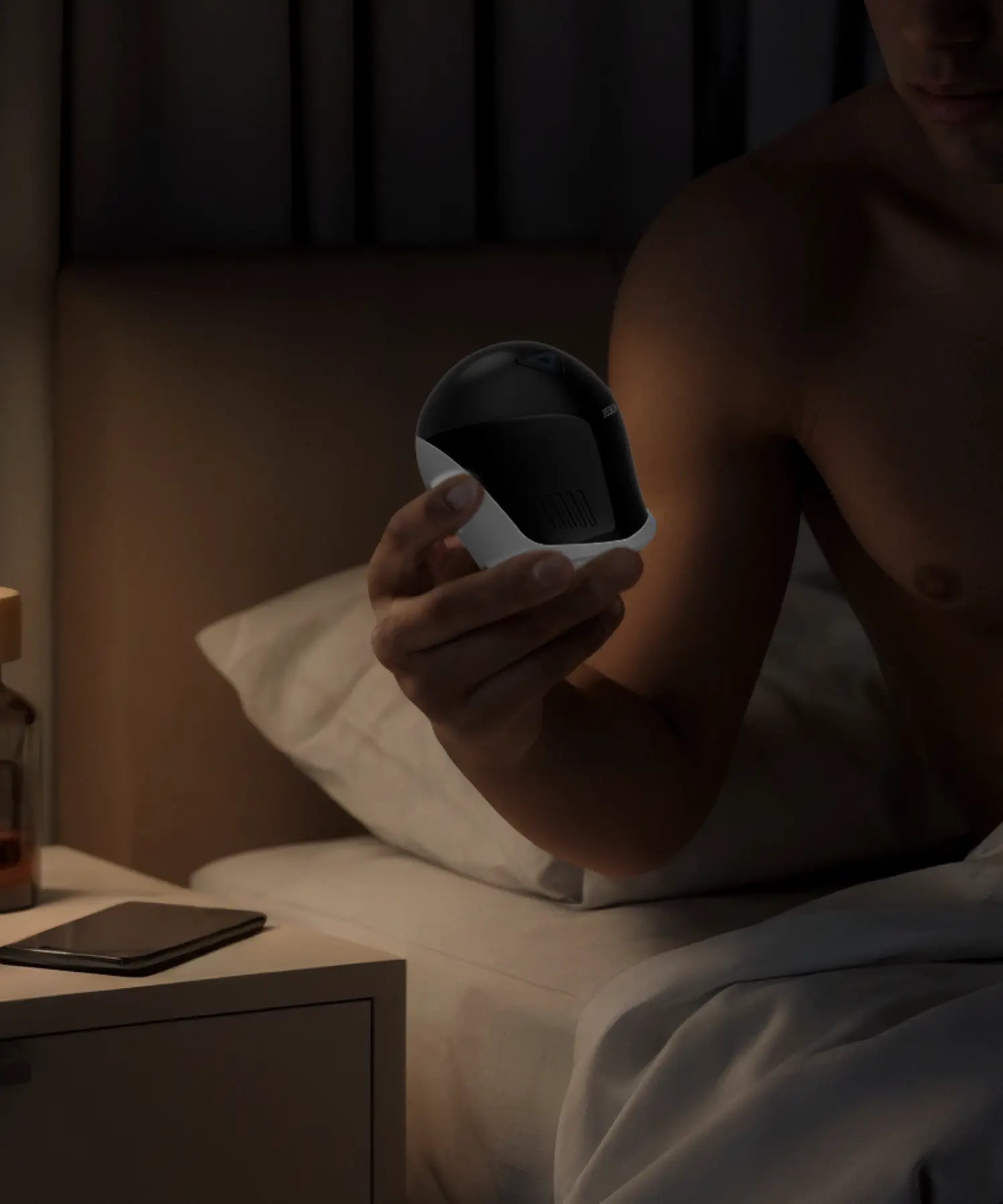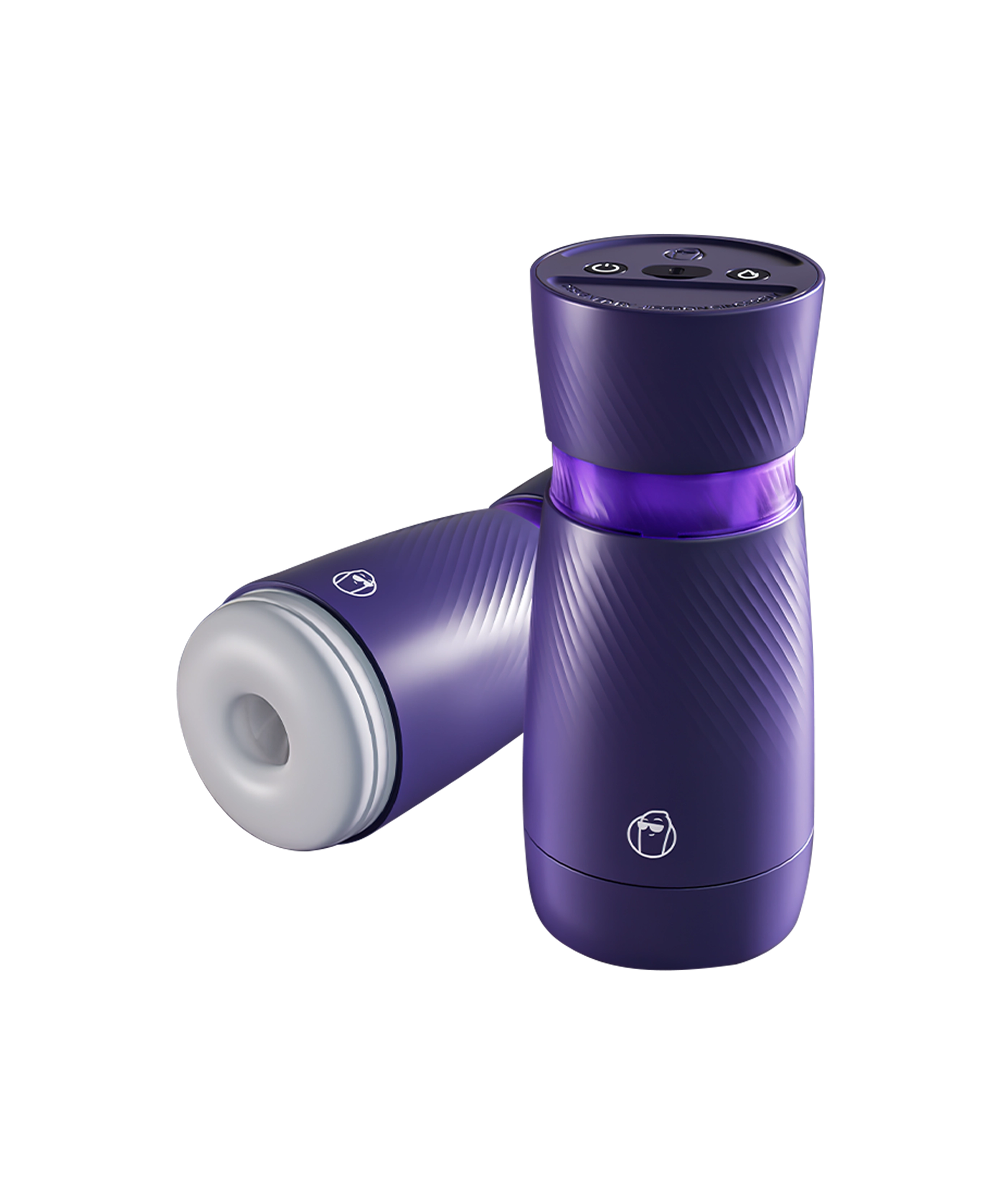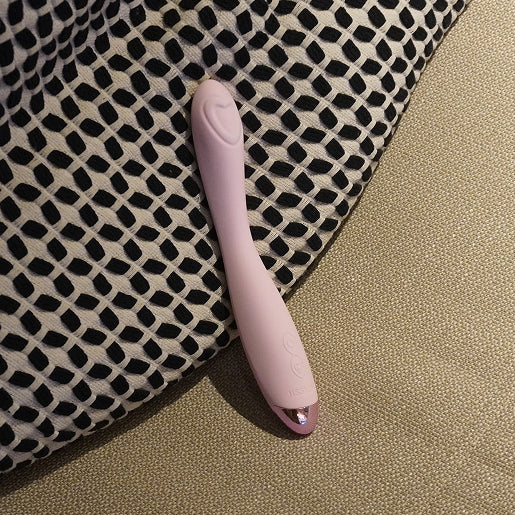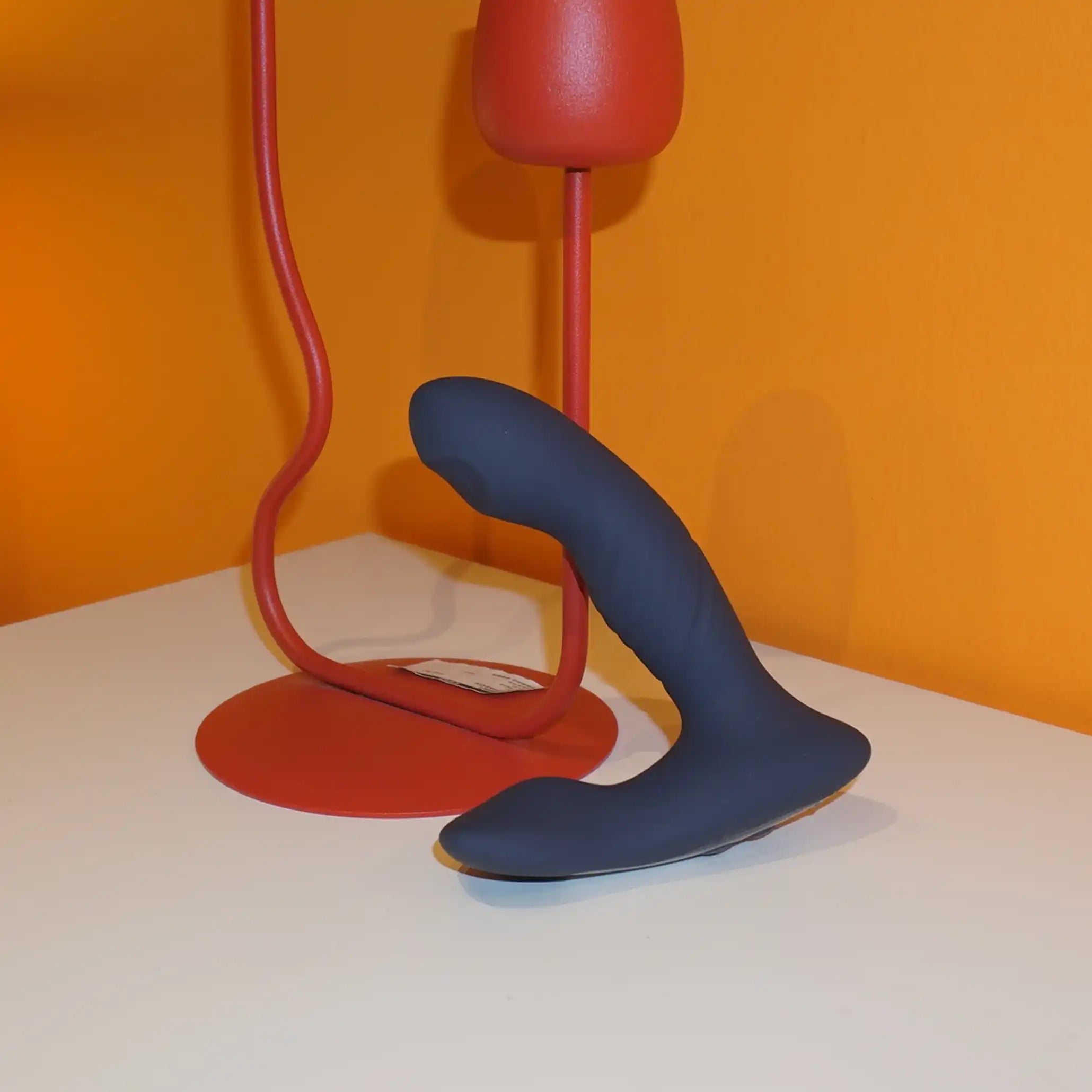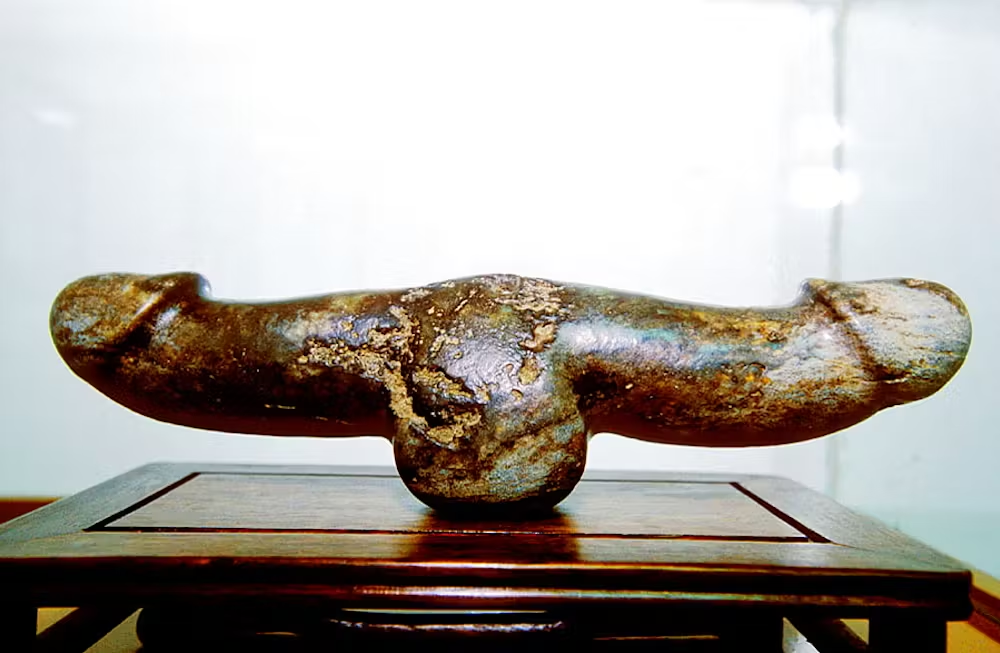Think sex toys are a modern invention? Think again. Humans have been creating pleasure devices for at least 28,000 years—long before farming, writing, or even the wheel was invented.
This guide shows how ancient people from Greece to China, Egypt to Rome, all had their own sex toys. From carved stone dildos to Victorian vibrators sold as "medical devices," the story is surprisingly long and fascinating.
What You'll Learn
The oldest sex toy ever found (28,000 years old!), how ancient Greeks, Romans, Egyptians, and Chinese used pleasure devices, the wild story of Victorian vibrators and fake medical treatments, how materials changed from stone and wood to modern silicone, and surprising facts about sex toys through history.
Bottom line: Sex toys have been part of human life for thousands of years across every culture.
The Oldest Sex Toy Ever Found

A 28,000-Year-Old Discovery
The amazing find:
In 2005, scientists exploring a cave near Ulm, Germany found something shocking. They discovered 14 pieces of polished stone that, when put together, formed a 7.8-inch long object shaped like a penis.
Why experts think it's a sex toy:
The object has clear signs - very smooth, polished surface (especially at one end), carved rings around the top that look like anatomy, size and shape clearly shaped like a penis, and made from 14 carefully carved pieces put together.
How old is it?
This stone penis is about 28,000 years old. That's older than farming (by 13,000 years), writing (by 23,000 years), and the wheel (by 22,500 years).
What this tells us:
Even in the Stone Age, people were smart enough to create objects just for pleasure. This wasn't about survival—it shows that feeling good sexually has always mattered to humans.
Learn about how sexuality developed in humans over time.
Other Ancient Finds Around the World
Scientists have found similar objects all over the world:
|
Place |
How Old |
Made From |
What We Know |
|
Sweden |
4,000-6,000 years |
Unknown |
Penis-shaped object |
|
Pakistan |
4,000-6,000 years |
Different materials |
Several found |
|
China |
13,000-19,000 years |
Bone/stone |
Both ends could be used |
|
Turkey |
2,600 years (6th century BC) |
Various |
Sex organ shapes |
|
England |
Stone Age |
Chalk |
4 inches long |
|
Italy (Roman fort) |
2,000 years |
Wood |
First called a "sewing tool" |
What ancient people used to make them:
Stone (different types), wood (carved smooth), bone and antler, leather (stuffed and shaped), and even camel poop covered in tree sap (yes, really).
Ancient Greece: The Olisbos

Open Minds About Pleasure
Ancient Greeks weren't shy about sex and pleasure.
What was an "olisbos"?
That's the ancient Greek word for dildo. These were usually made from leather stuffed with wool. They polished them smooth with olive oil so they'd feel better.
Where They Bought Them
Sold at markets:
Sellers in the city of Miletus were famous for making and selling these. Women could buy them at markets like buying anything else. Nobody thought it was weird or wrong.
Mentioned in Plays and Art
Famous play "Lysistrata" (411 BC):
In this comedy, women refuse sex with their husbands to stop a war. To deal with their own needs, they use leather dildos. This play was performed in public and people thought it was funny, not shocking.
Greek pottery:
Many ancient Greek vases and bowls show pictures of dildos being used. These weren't hidden—they were normal dishes used at dinner parties.
The bread joke:
Greeks even made jokes about making dildos from bread as a "softer option." This shows they had a sense of humor about pleasure.
Ancient Rome: Penis Power
More Than Just Fun
Romans used penis-shaped objects for different reasons:
1. Sexual pleasure tools
Romans made dildos from wood, leather, bronze, and even silver and gold if you were rich.
2. Good luck charms
"Fascinum" was the Roman word for penis charms. Romans believed these had magic powers to keep away evil spirits, stop bad luck, and bring good fortune.
Where you'd see them:
Worn as jewelry around necks, hung over doors, placed in gardens, and found in the ruins of Pompeii.
3. Praying for babies
The god Priapus:
Romans worshipped Priapus, a god shown with a huge, always-hard penis. Statues of him were put in gardens to protect plants and help them grow.
Where a medical word comes from: The medical problem "priapism" (when an erection won't go away and hurts) gets its name from this god.
A Recent Discovery Renamed

Finally figured it out:
In 1992, archaeologists found a 6.5-inch wooden object at a Roman fort in England. For over 30 years, they said it was a "sewing tool."
In 2024, someone finally asked: "Why would a sewing tool be carved to look exactly like a penis?"
Now it's officially called a sex toy—one of the few full-size Roman dildos ever found.
Understanding life in ancient Rome shows interesting attitudes.
Ancient Egypt: Pleasure and Power
Egyptian Openness
Ancient Egyptians were pretty open about sex.
What they used:
Stone (like limestone), wood (carved smooth), and leather (shaped with oil).
Art Showing Sex
Sexual pictures were normal in Egyptian art:
Temple carvings showed people having sex, artwork included penis symbols, and gods were sometimes shown with big genitals meaning life and babies.
Not just for living people:
Some Egyptian tomb paintings show dildos, meaning they were normal things to bury with dead people—things you'd want in the afterlife.
Ancient China: Rich People's Toys
Expensive Status Symbols
In ancient China, sex toys often showed how rich you were.
The Han Dynasty (206 BC - 220 AD):
Rich nobles used beautifully carved jade butt plugs. Jade was very expensive, making these luxury items. They had pretty carvings on them.
Different Kinds
Materials and who used them:
|
Made From |
What For |
Who Used It |
|
Jade |
Butt plugs, dildos |
Rich nobles |
|
Shiny wood |
Dildos |
Middle to upper class |
|
Bronze |
Different devices |
Upper class |
|
Ivory |
Fancy pieces |
Royalty |
Smart designs:
Chinese makers created dildos from shiny, coated wood (smooth and lasts long), toys you could use from both ends, and fancy carvings showing skill.
Penis Rings Long Ago
Ancient idea:
In the 3rd century AD, rich Chinese men used rings made from goat eyelids (with the eyelashes still on) to help sex last longer. Sounds gross today, but it shows they understood how squeezing could change how long sex lasted.
The Victorian Era: Fake "Medical" Devices
The Made-Up Disease
This is one of the craziest stories:
"Female hysteria":
In the 1800s, doctors invented a fake sickness called "female hysteria." They said women who felt anxious, grumpy, couldn't sleep, or basically had any feelings were sick from a "wandering womb."
Signs you had "hysteria":
- Feeling worried or nervous
- Can't sleep well
- Being grumpy
- Having sexual thoughts
- Feeling restless
- Pretty much any feeling doctors didn't understand
The "Treatment"
Pelvic massage:
Doctors said the cure was "pelvic massage." This was literally touching women's private parts until they had an orgasm—but doctors called it a "hysterical paroxysm" to avoid calling it what it really was.
Why this was crazy:
Victorian people were very uptight about sex. So doctors invented medical words to describe masturbation and orgasm. They convinced everyone (even themselves) that this was medicine, not sex.
Doctors Get Tired
The problem:
By the mid-1800s, about 75% of women in Victorian London had gotten this "treatment"—many over and over. Doctors complained it was boring, tiring, and took too long.
The solution:
Invent machines to do it instead.
Learn about Victorian ideas about sex from historians.
How Vibrators Were Invented
Early Tries
Timeline of vibrator inventions:

1. The Tremoussir (1700s, France)
The very first vibrator. You wound it up like a toy. Problem: Not powerful enough and stopped working before finishing. Users were frustrated.

2. Water-powered (1860s)
These hooked to your sink. Water pressure made them vibrate. Said it worked in just 4 minutes. Problem: You had to stay by your sink.

3. The Manipulator (1869, America)
Made by Dr. George Taylor. Steam-powered machine that looked like a table with a hole. A spinning ball provided stimulation. Problem: Steam power was dangerous for homes.

4. Granville's Hammer (1880, England)
Dr. Joseph Mortimer Granville made the first electric vibrator. He made it to treat sore muscles. Doctors quickly saw other uses. Used electricity (still new in homes then).
Why this matters: The vibrator was one of the first electric home gadgets—it came before vacuum cleaners and electric irons by about 10 years.

Sold to Regular People
Marketed as "health tools" (1900-1920s):
By the early 1900s, vibrators were sold in:
Sears catalogs (like Amazon back then), women's magazines like Good Housekeeping, and newspaper ads.
How they described them:
"Helps with health problems", "makes you feel better", "massage tool to relax", and "doctors use these".
Why people accepted them:
Because Victorians didn't think anything without penetration was "sex," women proudly showed their vibrators. They even used them in front of guests. It was considered normal, like a heating pad.
The Secret Gets Out
What happened in the 1920s:
Vibrators started showing up in porn movies. Suddenly, everyone realized what they were really for. Vibrators quickly disappeared from "nice society". Women hid them. Ads stopped. Catalogs removed them.
Vibrators stayed hidden for decades and didn't become okay to talk about again until the 1960s-1970s.
Modern Times: Better Materials
Body-Safe Silicone (1972)
The big change:
A scientist at General Electric created a formula for body-safe silicone in 1972.
Why this was huge:
Before this, sex toys were made from stuff that wasn't always safe - rubber with holes where germs could grow, materials with bad chemicals, and things that broke quickly.
Body-safe silicone is:
No holes for germs, lasts for years, can handle heat and cleaning, soft but firm, and totally safe for your body.
This changed everything about sex toys.
Technology Gets Better
1960s-1970s:
Battery-powered devices available. No cords meant freedom. No more plugging into walls.
1990s-2000s:
Rechargeable batteries (no more buying batteries), waterproof for shower use, and remote controls for partner fun.
2010s-2020s:
Phone app control, custom vibration patterns, internet control from anywhere, warming features for realistic feel, and automatic thrusting and spinning.
Browse today's pleasure devices using new technology.
People Become More Accepting
"Sex and the City" (1998):
A TV episode showing a rabbit vibrator helped make sex toys normal to talk about. Women started openly discussing using vibrators. Shops designed for women (not dirty stores) began opening.
Today:
Sex toys are talked about on TV and podcasts, sold in regular stores and online, and reviewed in major magazines. People now know that pleasure devices are normal, healthy, and nothing to feel bad about.
Complete Timeline: 28,000 Years
|
Time |
What Happened |
Where |
|
28,000 BC |
Oldest known dildo (stone penis) |
Germany |
|
19,000-13,000 BC |
Double-ended dildos |
China |
|
6,000-4,000 BC |
Various penis shapes |
Sweden, Pakistan |
|
500 BC |
Carved stone, wood, leather common |
Everywhere |
|
6th century BC |
Penis sculptures for protection |
Turkey |
|
5th century BC |
"Olisbos" in Greek plays |
Greece |
|
3rd century AD |
Penis rings from goat parts |
China |
|
206 BC-220 AD |
Jade butt plugs |
China |
|
1st-2nd century AD |
Wood and bronze dildos |
Roman Empire |
|
1400 AD |
Word "dildo" first used |
Europe |
|
1500s |
Leather dildos popular |
Italy |
|
1700s |
First wind-up vibrator |
France |
|
1850 |
First rubber dildos |
England/America |
|
1869 |
Steam-powered device |
America |
|
1880 |
First electric vibrator |
England |
|
1900-1920 |
Vibrators in catalogs |
America |
|
1920s |
Vibrators become secret (porn) |
Worldwide |
|
1960s |
Battery-powered vibrators |
Worldwide |
|
1972 |
Body-safe silicone created |
America |
|
1977 |
First women-friendly sex shop |
America |
|
1998 |
Sex toys on mainstream TV |
Worldwide |
|
2010s-now |
Smart toys with apps |
Worldwide |
Interesting Facts You Didn't Know
The Bible Mentions Them
Old Testament reference:
The Bible's Book of Ezekiel (16:17) talks about people of Jerusalem taking gold and silver to make "penis images and had sex with them."
Some people think this is a metaphor about worshipping fake gods. But many Bible experts think it literally means making and using dildos—possibly the first written mention of sex toys in Western books.
Where the Word "Dildo" Comes From
Word origin:
The word "dildo" first showed up around 1400 AD. It comes from Latin "dilatare" (meaning "open wide") and Italian "diletto" (meaning "pleasure" or "delight").
So the word literally means "something that opens wide and brings pleasure."
Babylon's Bread Cure
Creative medical fix:
Ancient Babylonians used warm bread pressed on the penis to fix pee blockages. The warmth would make you ejaculate to clear the blockage.
So yes, the "American Pie" movie thing has ancient medical history.
Fake Hemorrhoid Cure
Frank E. Young's invention (1892):
An American doctor sold 4.5-inch "Rectal Dilators" sold as hemorrhoid cures. These sold for 40 years until 1938 when a new law shut them down for lying about what they did.
Pretty obvious what they really were.
Sailors' Cloth Dolls
17th century French sailors:
Lonely sailors at sea made "traveling ladies" (Dame de Voyage) from cloth rags. By 1904, these became rubber inflatable dolls. By 1908, Paris catalogs offered custom dolls "made to look like any real person alive or dead."
Understanding how sex attitudes changed shows creativity.
Important People Who Changed History
Inventors and Pioneers

Dr. Joseph Mortimer Granville (1880)
Made the first electric vibrator. He wanted it for sore muscles, but doctors found other uses. His invention changed medicine and led to modern vibrators.

Joani Blank (1977)
Started Good Vibrations, the first sex toy shop made for women. Created a welcoming, teaching environment (not scary), hired smart staff to answer questions, and took a positive, women-focused approach.
This shop changed how sex toys were sold.

Gosnell Duncan (1972)
The General Electric scientist who helped create body-safe silicone. This material change made modern sex toys possible. Before this, materials were often unsafe or dirty.
What Ancient Sex Toys Teach Us
Important Lessons
1. Sexual pleasure is normal for everyone
Every ancient culture we've found had some kind of sex toy. This shows that wanting pleasure is a basic human thing, not something new.
2. People are creative about pleasure
From carved stone to stuffed leather to goat eyelid rings, humans have always been super creative in finding pleasure.
3. Openness changes by culture
Ancient Greeks and Romans talked openly about sex toys, while Victorian people had to pretend vibrators were medical devices. This shows that attitudes about sex depend on culture, not nature.
4. Medical excuses worked
The "female hysteria" story shows how societies accept what they officially say is wrong. Victorians wanted vibrators but couldn't admit it, so they made up a medical excuse.
5. Technology always improves
From stone to wood to leather to rubber to silicone to smart devices—each time period uses its best technology to make better pleasure devices.
Learn about sexual behavior across cultures throughout time.
FAQs
Were sex toys really 28,000 years old?
Yes. The oldest confirmed penis-shaped object found dates back about 28,000 years. It was found in Germany and made from polished stone. While we can't be 100% sure what it was for, its shape, size, and polish marks strongly suggest it was used for sexual pleasure.
Did doctors really treat women with orgasms?
This is debated. While vibrators were definitely sold to doctors and many Victorian women got "pelvic massage" treatments, some historians question if doctors really knew they were causing orgasms. What we know for sure is that vibrators were sold as medical devices for treating various female "problems."
When did sex toys become okay to talk about?
It depended on the time and place. Ancient Greeks and Romans were open. Victorian societies hid them behind medical talk. Modern acceptance started in the 1960s-70s but really took off after the 1998 Sex and the City TV episode showing a vibrator.
Why did ancient people make sex toys from stone?
Stone was one of the few materials available 28,000 years ago that was hard, lasted long, and could be polished smooth. They didn't have rubber, silicone, or plastic. Stone was actually one of the best choices for making a smooth object that would last.
Are modern sex toys safer than ancient ones?
Absolutely. Ancient dildos made from stone could chip or break, leather grew germs, and materials like camel poop (yes, really used) were gross and unhealthy. Modern body-safe silicone has no holes for germs, is easy to clean, and is designed just for safety and comfort.
Conclusion
The 28,000-year history of sex toys shows that humans have always cared about pleasure and been creative in finding it.
From carved stone penises in prehistoric caves to Victorian vibrators disguised as medical devices to today's app-controlled smart toys, pleasure devices have evolved with human technology and culture.
What stays the same across all cultures and times is the simple truth that sexual pleasure is a basic human desire worth creating tools to enjoy.
Ready to explore modern pleasure technology? Discover our pleasure products for partners designed with 28,000 years of creativity behind them.
